Complex | Interview
Complex formed in 1968 consisting of lead guitarist Brian Lee, lead vocalist and drummer Anthony Shakespeare, bass guitarist Lance Fogg and rhythm guitarist Tony Fisher. After some initial personnel changes, in early 1970 the line-up added Steve Coe on keyboards. They were based in Blackpool in North-West England. In November 1970 they cut their first album, entitled simply Complex.
Originally devised as a demonstration record (demo) for bringing the band to the attention of major record companies for the purpose of obtaining a recording contract 99 copies of the album were pressed by Craighall Studios in Scotland. The reason for so limited release was the imposition of Purchase Tax on quantities greater than 99.
Where and when did you grow up? Was music a big part of your family life? Did the local music scene influence you or inspire you to play music?
Lance Fogg: I was born 20th November 1943 in Hampton Court and lived in Esher, both in Surrey, SW of London until I was 8 when my parents moved near to Leamington Spa in Warwickshire (in the Midlands). They moved again when I was 22, at university, to the North West to live in St Annes on Sea (part of Lytham St Annes) in Lancashire. When I finished university I stayed to work in Lancashire. I had graduated with a degree in Civil Engineering and started work with Lancashire County Surveyors Department as a Graduate Engineer, designing and supervising the construction of motorways and other highways. Music was always present in the house – my mother was a concert pianist. She taught both myself and my younger sister, Karen, the piano. She also taught music at a local school when we lived near Leamington Spa and had private pupils as well playing concerts, sometimes on the radio. We had so many musical instruments in the house that we had an extension built onto the house called The Music Room. There was a concert grand piano, a clavichord, a spinet, a double bass, a cello, my sister’s recorders and clarinet and the start of my guitar collection as well a big hifi system. I actually started at the age of 4. I’m told I used to walk around the house singing at the top of my voice so eventually my parents decided I needed singing lessons. I was signed up to a professional voice coach and I gave my first public performance, aged 4, singing to the local Women’s Institute at a lunchtime concert. I started to learn to play the piano at the same time and so did my sister. I was always interested in music. I remember being allowed to watch an evening TV programme before going to bed called “Off The Record” hosted by Jack Payne. This was in the 1950s and was the first programme dedicated to popular music. All the current stars sang live, including the Beverley Sisters, Lita Rosa, Frankie Vaughan, Michael Holliday, Eve Boswell, Ronnie Hilton etc but also included such artists as Buddy Holly & The Crickets and George Melly, a jazz singer. I remember having an early teenage crush on Lita Rosa but musically much more interested in the rock and jazz! At the age of 11, in the Lower 4A at Warwick School I was selected to sing as one of the soloists in the Christmas Cantata, a work by Handel for choir, Organ, trumpet and solo singers. I later played in the school orchestra as well as taking part in musical events such as the end of summer term school concerts
Brian Lee: I was born in Blackpool in 1946 (but please don’t tell anyone my age)! My mother was an accomplished pianist and she had a promising career as a film accompianist (my invented word!) – i.e. when a film was shown at the cinema she played piano to accompany the pictures and add drama – as of course there was no sound recorded on silent films (all rather a long time ago!).
Anthony Shakespeare: Born in Burton on Trent March 1951. Parents were publicans and we moved to Manchester in November 1951 and my dad bought a newsagents shop. The area I spent the next 6 1/2 years in was like Coronation Street; terraced houses and back alleys. Moved to Stockport April 1958 and then to Blackpool December 1964. Always had the radio on in the house and we had the upright piano although no one used to play it. I used to sing along with the songs from a very early age but was very shy and would only do it, when requested, from behind the sofa. Whilst I was growing up I spent very little time in the house as I was always playing out and was really interested in sport in those days, and my friends and I would go on quite lengthy bike rides especially in the summer holidays.
When did you begin playing music? What was your first instrument? Who were your major influences?
Lance: I started to learn to play the piano at the age of 4. There was also a cello in the house and when I started to get bored with my music teacher at school I started to show more interest in the cello. My parents arranged for me to have cello lessons at the age of 11. I started to take more interest in the music on the radio and at 14 I persuaded my father to buy me a guitar. It was actually a “Hobbies” kit which meant I had to build it myself. The following year I sold it and bought my first proper guitar – a Hofner Congress which cost me all of 15 guineas (= £15 and 15 shillings = £15.75). I later bought a Framus triple pickup and fitted it on the guitar. I had been promoted from lead cello in the school orchestra to the single double bass player. Aged 16 when I took my “A” levels at school (Maths, Physics and Chemistry) my mother offered to buy my a double bass if I passed them all. Needless to say I was successful so a trip to Birmingham resulted in me being the proud owner of a double bass. At the same time I began to be interested in a new instrument – the bass guitar. I found this to be a crass between guitar and double bass and decided to build one myself. Being the only person around with such an instrument I started to get asked to play with local bands of all types – dance bands, jazz bands, skiffle bands even rock bands all generally nameless because they were “scratch” i.e. organised just for the event. Around this time, the late 1950s and early 1960s I suppose my main influences were The Shadows, Sounds Incorporated, Johnny and the Hurricanes (Red River Rock), Duane Eddy, The John Barry 7 (Hit & Miss) and Sandy Nelson (Teen Beat) – all very instrumental. British artists of the time – Cliff Richard, Marty Wilde, Joe Brown and those featured on TV shows such as the 6.5 Special and Oh Boy! were also influences. Around 1960 when I became mobile using my mother’s car I started to visit rock and blues clubs. I first saw The Kinks in their very early days and was gobsmacked with their very basic approach. I went out and bought their first album immediately afterwards. My sister and her friends were soppy over Elvis and I managed to get hold of a copy of his first album simply entitled “Elvis Presley”. This really opened my eyes and ears. The combination of Elvis’ vocals and the amazing backing, particularly from Scotty Moore on guitar showed me how it should be done! I also started to get acquainted with the music from the Bill Black Combo and that in turn took me on to the likes of Muddy Waters and Big Bill Broonzy. Some of their music showed how the blues had pioneered the advent of rock’n’roll.
Brian: Mum had a Hopkinson Baby Grand piano in the lounge and I sort of plinked along on the keys a bit and Mum was really chuffed and got me a tutor. I was doing quite well but cheating a bit cos I never mastered playing using sight reading of music from a sheet – I always simply memorised the tune and played it looking at the keyboard all the time. I got away with this for a few months and must have successfully fooled both my mum and the tutor cos I heard them discussing “Grade 1 to Grade 8 exams” or something similar and I panicked mightily – I had had enough of exams at school! End of that promising career then! When I was about 13 my parents bought me an acoustic guitar. Despite very sore fingers I started to get the hang of it, but was never very happy with the sound it produced. Along with an electronic genius at school, I built an amplifier – all of about 12 watts – and got a crude microphone pickup which attached to the guitar and produced a very weak signal. I fed this to my amplifier to be met with this awful feedback and distortion … Having tamed the feedback to some extent I decided I rather liked this distortion – I called it “Distortasound” – catchy eh? (OK OK – suit yourself!). This pre-dated Fuzz by at least 6 months – oh yes! Many months later with very sore fingers I went to a local music shop and looked at genuine electric guitars and picked on one I thought looked OK – and the price was right although slightly more than my pocket money savings. I tried it for a few minutes – it didn’t seem too bad – better than the acoustic but that wasn’t saying a lot! So with my pocket money savings plus a bit of help from the Bank of Dad I bought it – it was called a Rellog Gitona IIRC and was pretty awful in hindsight – action poor, no sustain worth speaking of – a kids starter special! Hmmm – Fair enough I suppose! (Just checked on Google – yep – Rellog Gitona indeed existed – but the guitar the guy is playing is light years ahead of the guitar I had – that one sounds pretty darn good actually and the guy playing it is a jazz natural! Respect! Anyway… So – I was playing my new super guitar in the kitchen one evening through that 12 watt amp. It was a warm evening and I had a window open slightly to keep cool. After a while the front doorbell went … A guy who lived in the housing estate near the back of our house had heard my (rubbishy really) playing and had walked around to pinpoint where the noise was coming from – all the while lugging a guitar – AND a comparatively large and heavy (home-made by him I discovered afterwards) amplifier. I answered the door and he said “Hi – was that you playing guitar?” Somewhat nonplussed at this guy turning up unannounced – guitar in one hand and huge amp in another – all I could say was – “er – yes”! To which he said “Can I join your band?!” I said “What band?!” … After some discussion and checking with Mum and Dad that it was OK I invited him in and discovered he knew loadsa chords and was actually a quite accomplished player! I was a bit worried that he was probably better than me, however he took great pains to mention that he only wanted to play rhythm guitar – he was not interested in playing lead guitar. So – a band was formed! – The Ramblers. His name was Bernie and he was a really nice guy. We played a few gigs locally along with Stewart on drums (the son of Mum & Dad’s friends) and word started getting around. Another family acquaintance pointed out that their son could sing (and was good-looking as well which always helps). We changed his name from Derek Johns (real name changed to protect the innocent) to Derek Valan (as Brian Epstein had started a trend for dashing names like Billy Fury, Marty Wilde etc). OK – Valan wasn’t terrific but it sounded reasonably cool and we could easily remember it as it was the make of our mike stands and it was clearly marked on the heavy base of every stand we had. The stands were very robust too – I still have one in my garage which I use as a marker to indicate when to stop reversing before I plough through the garage wall. So yes – it is still in regular use! OK – bass man needed … I think we then put an ad in the paper for a bass player. We only got one reply – Tom was his name. He never claimed to be a great player but he was a nice guy and always turned up reliably for rehearsals. He had an old bass guitar which wasn’t very good – I can’t remember the make – if it actually had a maker’s name on it at all. Then one day he turned up for rehearsals – with a Fender Precision bass! Impressed! However his playing had not improved … Now I have always had a good ear for bass, largely because my dad saw a radiogram in a shop one day and fell in love with it and it was delivered to our house a few days later. It was a Grundig Arundel Console Concertgram to give it it’s full title! This was a beautiful beast – solid mahogany, record player deck (with disc autochanger), space for a tape deck – but the piece de resistance was – it had 3D sound! (This was well before stereo by the way!) OK – what is 3D sound? It was Grundig’s attempt to recreate the sound of a full orchestra in your living room. It wasn’t stereo – that was years off – but the sound it produced from it’s 6 speakers was nothing short of awesome! It had two huge oval woofers mounted at opposite ends of the cabinet, two squawkers also at the ends facing about 45 degrees forwards, and two tweeters facing forwards. You could adjust the balance of the tweeters separately. I had never heard anything like it before. Absolute knockout sound – with bass that could shake the room!!! So the Grundig became the music delivery package of choice – and the bass was prominent!!! So I tended to hear the bass of all music loudly so I just picked it up quickly. So when Tom brought in his Fender bass but was still playing random notes, I took him to one side and said “Look Tom – you have invested a fair amount of money for that bass – how about I show you a few typical bass runs?” He said OK cos he knew he could use some help. So I showed him some bass runs and variations and showed him how the same run could be played in different keys – and his playing improved rapidly over the next few months – he actually became a pretty good bassist! The Ramblers were quite popular and played a goodly number of clubs in their time, but University beckoned … I’ve just found some acetate records that we made as the Ramblers – I’ll see if they play OK and just might put them on Youtube … – But once again – I digress! Early Influences – Hmmm …The Shadows – Hank Marvin, Duane Eddy (initially before I realised he could hardly play at all!), Sandy Nelson – (I loved Teen Beat too!), Chet Atkins, The Everly Brothers, Shane Fenton and the Fentones, The Kinks did some excellent stuff, Chicago (thanks to Lance’s impressive record collection), Elvis (Presley of course – a true legend! The King!). Too many to list really! Probably the main one in the early days – Gotta be Hank Marvin in The Shadows!! (Cliff Richard’s backing band in the 1960’s). I liked Cliff and the Shadows but confess I liked instrumental music more than songs so The Shadows were my main influence at that time. Plus I loved the sound of Hank’s Fender Stratocaster guitar – I thought it was out of this world … And I liked it even more when I first actually saw a Fender Stratocaster – WOW!! … It looked like it came from outer space compared with the pathetically dull efforts from everyone else! And when I heard “Peace Pipe” – the B side of their hit “The Savage” I just melted! Just give it a listen – you may agree! I never actually said anything to Mum and Dad but they clearly knew that I was besotted by this guitar. I was made even more determined to get one when a guy a few years older than me at school joined a band and rumour was – he had a Strat. I spoke to him about it and he said “Yes – it’s fantastic – I just stand there and hold it – it plays itself!! OK yeah … ” A few months later (approaching Christmas I think) my Dad spotted an advert in the local paper classified adverts – Guitar for sale – Fender Stratocaster – and an address in Morecambe …! He said to me – “Do you really want one of these Fender things then?” Wot! Can a duck swim!! Now bear in mind this was the early 1960’s. Fenders are American – they were like rare as rocking horse dung here in the UK. And they were expensive – like 168 guineas retail (about £176) – and commanding much more than that in the UK due to rising demand and low supply rate. Anyway we set off to Morecambe and actually found this guy’s house. All without a Sat Nav of course! Rang the bell and this guy invited us in and he gave me the guitar to try … He had no amp so of course we could barely hear what I was playing – but immediately I realised it wasn’t all hype – this guitar really is as beautiful to play as it is to look at!!! So I played it for a bit then Dad said – “Let the guy play it a bit Brian” … He said – Well I’d rather not – I don’t play really but my Dad insisted … Well – he was right – he couldn’t play very well … Anyway my Dad says to me – Do you like it then?? I said – Oh Yeah – It’s fabulous!! So Dad turns to this guy and says – How much do you want for it ? The guy says – well the current going rate is about £170 for one of these – if you can find one! And my dad said – “Hmmm OK – I’ll give you fifty quid!!!! I said OH DAD!! (Thinking the guy would kick us out!) And Mum said “OH CARL!!!” (probably thinking the same thing!). My Dad said “shut up!” (knowing exactly what he was doing …) Then to our amazement the guy said – “call it £55 and it’s yours!!!”And it was agreed! I was one very happy kid! In the words of Chris Rea – That guitar changed my life! Such a fantastic sound, superb to play, looks great – what more do you want? After Hank and the older influences I started to hear more heavy rock style stuff and I liked it! Fortunately the Strat was used heavily in that style of music so that was fine. Specific Influences: Jimi Hendrix – a genuine and original superstar! I saw him live in 1965 or thereabouts when Salford Uni and Manchester Uni combined efforts and budgets for the rock concert to end all rock concerts! Yes Really! Main Artists playing at that concert were: The Jimi Hendrix Experience; unbelievably good – but I was horrified when he set fire to his Stratocaster at the end!! I found out later it was a duff one that he set fire to every night and roadies put out the fire so he could torch the same one every time! I’ll forgive him for that then! Also I noticed he was a bit out of tune but I later realised he was changing tuning from standard to drop D to G-tuning all the while he was announcing the next number! NOT EASY! RESPECT! Forgiven again! A true talent. Pity he choked on his own vomit after taking drugs … Cream (Eric Clapton, Jack Bruce, Ginger Baker). I love their records but the balance for them was poor on the night – Jack Bruce’s bass was far too loud – and out of tune – and his vocals were also too loud. I mean if you’ve got Eric Clapton in your band but you can’t hear a single note of the phenomenal guitar licks he’s playing what is the point? Not their fault – the PA guy obviously was struggling! The Moody Blues – Hardly heavy rock but excellent melodic ballads and great songs! Surprisingly I actually enjoyed them more than the other bands for the reasons above!
Anthony: My best friend at school, Howard, used to have piano lessons and then learned to play the clarinet. When I went to senior school in 1962 I met a guy there who bought a Hofner violin bass guitar and amplifier, ala Paul McCartney, and I introduced him to Howard, who by then had bought a guitar, as had I. The difference was he could play his and I couldn’t. I introduced Howard to another school chum of mine, David Swindlehurst, and those three became the nucleus of a group I never played in as we moved to Blackpool. This of course all coincided with the birth of the Mersey beat and all that went with it. My first hero in the 50s had been Lonnie Donnegan and I think the reason for that was the fact that he was a bit raunchy and gave his music energy. Have never liked the crooners. Too laid back for me. However I then discovered Buddy Holly and it changed my life. Pretty well sailed through rock and roll but I remember my sister, 8 or 9 years older than me, had a boyfriend who bought quite a lot of American records and I particularly remember an Eddie Cochran b-side, “Halleluja I Love Her So”, which I thought was the definitive version of that song. “Tequilla” by The Champs and “Hit The Road Jack”, Ray Charles stick in my mind as does “Cathy’s Clown” by the Everlys, a record that must have been played 30 times during the evening of my sister’s engagement party. Early in 1965 I set myself a target of learning to play the drums. I knew I had good timing so my first “kit” was 3 exercise books on the kitchen table for snare and 2 toms, bass drum was the floor, cymbal was the radio handle and my sticks came from a 12 inch wooden ruler split down the middle. CLASS! Got my first real kit in 1965 which cost me £80. Pop music was my major influence. I just loved nearly all of it. So fresh and vibrant. As my drumming improved, Bobby Elliot of The Hollies was a major influence.
What bands were you a member of prior to the formation of Complex?
Lance: My first “band” was a jazz trio – the Dave Wilmot trio – piano (Dave), bass (me) and drums (Colin). We played ragtime, Scott Joplin stuff. We made a recording at Dave’s house and had acetates made. I think I’ve still got one! Colin Symons on drums was amazing. He was only 14 going on 15 yet could play all Joe Morello’s stuff from Dave Brubeck’s recordings which was extremely complex jazz drumming. I often wonder if he managed to make it in the music business. As mentioned before I played a lot in “scratch” bands but around 1961-2 I joined The Bumblies, a Coventry-based blues band. The lynchpin of this band was the guitarist, Martin Noble, who was at school with me. He was brilliant and again I often wondered if he managed to make a career out of music. I then went to Aberdeen University where I met some like-minded musicians. At one time I was playing in the university orchestra and two jazz bands, The Riverside Jazzmen and the Sandy McLeland Band. The Riverside Jazzmen was a typical British Trad Jazz outfit and contained only a couple of students. Under pressure and finding a diminishing market for that type of music it eventually meta-morphosised into Gary K Vega and The Facels, later to become simply The Facels. (We wanted to emulate The Cadillacs but also liked the title of Billy J Kramer and the Dakotas – hence using the Facel Vega, a French supercar we came up with that name). The Sandy McLeland Band was an all-student affair which played at student hops and social events. Then came The Misfits. At the end of my first year I met up with Gerry O’Regan, Robin McKenzie and Dave Lunny, all at university, and together formed The Misfits. Later I had to leave my gear back home so my place on bass was taken by Al Simpson, a junior reporter on the local paper. I continued as chief roadie and “manager”. The band were very Beatles influenced with similar harmonies and did quite a number of Beatles cover versions as well as a few of our own compositions. The Misfits were quite successful and travelled around Scotland for 3 years gigging and also featured on a show supporting the Black & White Minstrels as well playing at Her Majesty’s Theatre in Aberdeen as the stars of the student Charities Campaign show. I was glad to hear recently that Gerry O’Regan, an extremely talented musician and singer, has had quite a successful musical career. After finishing university and back in Lytham St Annes I met up with an assortment of musicians and firstly joined another jazz band. I can’t remember what we called ourselves but it didn’t last long. Then I got a phone call from Brian and the rest is Complex history
Brian: The Ramblers (local to Blackpool), The Fallen Angels (Salford University students Rock Band), The Salford Trio (Salford University Students Folk Band), Mynzapint (Playing Bass and vocal backing – Comedy folk band local to Blackpool) (There is a Mynzapint Web Site – worth a look but make sure your mom isn’t within listening distance as the lyrics could be a bit – erm – different! Google Mynzapint and you should find it!
Anthony: First band at school was called The Integrals. Did my first gig with them Oct. 1965. The other lads went of to work/university so a new band came along, The Magic Roundabout and this was the first band in which I was lead singer and I cut my teeth on a lot of soul/Tamla Motown songs. Think this is where I gained a little “edge” to my voice which fortunately has stayed with me. When that band broke up, answered an advert in the local paper, met Brian, Lance and Tony Fisher, and the rest is history.
What was the first song you ever composed?
Lance: When I started making up original compositions they were tunes rather than songs. I had always paid much more attention to the backing than the lyrics to the extent that I often used to think of the words as being quite superfluous. It was the overall sound that mattered. I don’t think I’ve ever actually composed a complete song, I was always a contributor of bits and pieces that went into a song, like dreaming up an intro or a lyric line for a chorus or middle 8. I guess my first major contribution was with The Misfits when I suggested that the number we were writing that evening should be in 3/4 time. Why? Because there were hardly any songs out in that time signature. And then there were always those blues numbers that started with “I woke up one morning………” and numerous variations on that theme. Often used when a guitar string needed changing or a duff lead had to be changed. My role was typified by my part when we were writing songs later on when we had Keith on keyboards. Tony had an idea of a number with a sort of “talky” style of lyrics but we were stumped when we came to a chorus. We had ideas for the change of key but no words so we ran though a verse and into the chorus to see what words word come naturally and I just happened to sing about “Bye Bye Smiley Ann” and it was eventually adopted. That became the title and the song became one of our favourites.
Brian: My first effort was actually an instrumental called “Ramblin’” – it seemed fitting as the band I was in was called The Ramblers! It wasn’t brill! The first actual song was a little rock ditty entitled “Smiley Ann” back in 1974 as I recollect. I first thought up some daft lyrics …
V1
A hint of Love was in her eyes
I thought I was in Paradise
But I was skating on thin ice
My head was spinning!
(Can’t remember but it might have been Keith that came up with that last line! He always sang (or rather spoke) the line anyway!)
V2
Inconsequential acts of mine
Were only meant to pass the time
I really have no fancy line
My Head was spinning!
If there’s any interest I could add it to the Complex Website – I think it’s worth a listen, although it’s hardly on a par with Steve Coe’s stuff or Keith Shackleton’s stuff. Some of those are little short of brilliant IMHO!
Anthony: Hard to remember that. When Kieth joined the band in 1972 we entered competitions and things where you needed to include at least one original song in a 20 minute set and later on when we had got our publishing deal we were all encouraged to have a go. However, on the Who Got The Love sessions in 1975, 3 songs were recorded, and mine was the one that didn’t make the A or B side, entitled Down To The City, very much Gary Glitter/Bay City Rollers influenced.
Can you elaborate the formation of the band?
When I finished at Salford University my thoughts turned to being in a band again. At the time Tony Fisher (rhythm Guitar in the Ramblers) was still available so I gave him a call. He agreed to join immediately but warned he was planning to join the army at some point but until then he was all for it. So – one down … Thoughts now turned to a drummer. So I put an ad in the local newspaper classified ads – something like “Drummer wanted for new band – Blackpool area.” This guy turned up and he was a really good drummer – only 17 at the time I think. His name was Tony Shakespeare. He was always very enthusiastic about doing new numbers – and while drumming he sang the words as well – originally so we knew where we were in the number for the sequencing etc. Then we realised – he was a damn good singer – why bother getting a separate singer?? Tony could sing better than anyone we knew anyway! A singing drummer was very unusual in those days (The Eagles hadn’t been born then) but we thought we’d try it anyway and see how it went. It went extremely well – Tony’s voice was excellent AND he obviously had a split brain as he could sing and drum at the same time – and do both very well!! Additionally his memory for song lyrics was amazing, and to cap it all he had a fantastic ear for picking out a slightly wrong chord (“no no that isn’t right – that third note is wrong – try a semitone lower!”). To hammer the point home he would often sing the required note “It sounds like TaDa…!”). We gave up arguing about it – he was nearly always right!! So when we needed a bass player – an ad in the local paper seemed to be an excellent way to go … but while we were in a music shop one day I realised it was actually cheaper to just write an ad on a piece of paper and stick it up in the local music shop – whoa – what’s that – an ad for a bass player looking for a band … – fate had obviously intervened! So we rang the telephone number shown … And I’ll let Lance explain the next bit!
Lance: Oh! I’m not sure. I got a phone call from Brian who had seen my advert in a music shop – Bass player looking for a group, can play anything from Bach to Blues – the kind of thing musos put on the pin board in shops where other musos go! He called round to my folks house with his guitar and this funny little Watkins Westminster amplifier. The guitar was Fender Stratocaster which immediately impressed me. He explained that that the amp was just for practice purposes. We spent the whole evening going through his repertoire of Cream and Jimi Hendrix numbers and agreed to meet again. I think he had already made contact with Tony because the next time we met was round at his parents’ house and Tony was there and so was Tony Fisher on rhythm guitar, an old mate of Brian’s with who he had been in a band before he went to university. We had no idea of the direction of the band except that we all just wanted to play music. Just along the coast Blackpool was in its heyday, the country’s busiest and biggest seaside resort and we just wanted to get a part of it. Initially a lot of our music was quite heavy and based on Brian’s knowledge of Cream and Jimi Hendrix numbers but also mixed up with some pop covers which Tony knew. Our joint tastes in music were quite diverse but we were also quite tolerant of other’s choices. When Steve Coe joined, his music immediately started to create the “Complex sound”. Brian’s mum who used to manage the band “The Ramblers” that Brian and Tony played in before university took over the admin and started to make up publicity material and finding gigs for the band. She did an enormous amount including letting us use the front room as an almost permanent rehearsal room. Logistics and admin are almost as important as the music when a band is starting up.
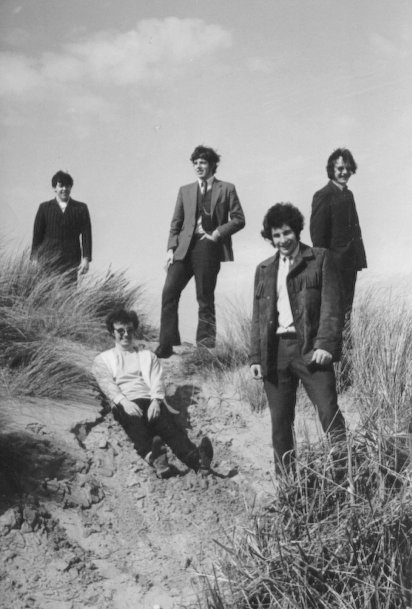
Brian: My Mum used to own the local Launderette and Dry Cleanerette in St. Albans Road, St. Annes, and she met a lot of people who became regular customers and eventually friends. It was also a good meeting place for a coffee or tea (thanks to a Ditchburn vending machine and a few chairs!) whilst waiting for your washing to finish! They all knew about the band as Mum loved giving them the gossip about how we were doing. So of course she tells them that we were looking to replace our rhythm guitarist … Mum was proud of the band – she was also the Manager and got all of the gigs – and also financed the production of a record which went on to be quite famous – if you have one of the original copies they are literally worth thousands of pounds now … Unfortunately I sold mine for rather less than that … Bah!! Anyway one launderette customer was Mrs Coe – she and her husband owned the chemist round the corner – and – guess wot – … her son Steve played keyboards!!! How about that then!!! So he came round a few days later to a rehearsal and played along for a while. After one number he was in!!! It seemed strange at first working with keyboards instead of rhythm guitar but we adapted and it went well. However – an additional bonus which we didn’t know at the time was that … Steve Coe was a composer as well! And many of his songs were SERIOUSLY good! This is probably as good a place as any to reveal the full Monte on the songwriting duo – Bob Mitchell and Steve Coe … Steve Coe and Bob Mitchell. It is well known how Elton John and Bernie Taupin worked – Bernie wrote poetry actually, and then sent them (as lyrics) to Mr Reginald Dwight to add music to them – with quite good results of course …Well – Steve’s lyrics man was also a poet – his name was Bob Mitchell – and he came up with some mind-boggling lyrics, many of which were so intense they are classed as Psychedelic by many knowledgeable record pundits and record buyers! Before you ask – no – we never met him – he lived down South somewhere I believe. My Mum who used to manage the band “The Ramblers” (that Brian and Tony Fisher played in before university) took over the admin and started to make up publicity material and finding gigs for the band. She did an enormous amount including letting us use the front room of their house as an almost permanent rehearsal room.
Anthony: Answered an advert in the local paper as mentioned and I think the remainder will have been covered.
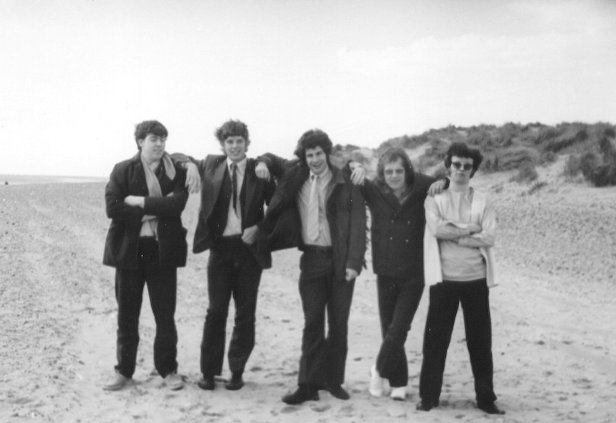
When and where did Complex play their first gig? Do you remember the first song the band played? How was the band accepted by the audience?
Brian: First song of a gig … Hmmm. Tony in particular liked to be playing up-to-date pop numbers so we often started with a current pop hit e.g. “This Town Ain’t Big Enough For The Both Of Us” (Sparks); “Make Me Smile (Come Up and See Me)” (Steve Harley and Cockney Rebel) and many others. I think on many gigs we actually started with the current No. 1 in the charts! People often remarked that we were unusually good in playing current chart hits – and playing them well too (Chris Barrow’s words not mine – Mynzapint singer – see later for website details). Other songs like “Listen To The Music” (Doobie Brothers) or a Clapton number were felt more appropriate for some more rock oriented places. Also as I was particularly into guitar sounds “as close as possible to the original sound” we often threw in “Apache” and/or “F.B.I” (by the Shadows) for older audiences – obviously depending on the look and/or mood of the audiences. Overall though we had approaching a hundred numbers we could pick on at any time. I think the St. Annes YMCA may have been the first gig – it was certainly one of the first.
Lance: Oh geez!! I’m guessing it was either the St Annes YMCA or the Broadway Rooms in Fleetwood but Tony or Brian would probably remember. We did quite a few gigs at those two venues in our early days. In fact it was at the St Annes YMCA that Steve Coe saw us and eventually came over a chatted with us about music. I have no idea what our very first number was but it might have been “Sunshine Of Your Love”. We did a version which was close to the original and was very popular. However the more I think about it, our first gig probably ended rather than started with it. Complex generally had a good rapport with audiences. We used to go down very well whatever the venue. We were always trying to put on a good show and early on developed the use of lighting to augment the presentation. Mrs Lee (Brian’s mum) used to make stage wear for us which didn’t always et universal approval.
Brian: Complex generally had a good rapport with audiences – partly due to Tony’s ability to crack jokes and do comic intros to the next number. His ability to intersperse seriously good voice impressions helped as well! We used to go down pretty well whatever the venue. We were always trying to put on a good show and soon upgraded to a fairly seriously good (for the time) PA system with a 16-channel mixer desk and a talented young guy on the mixer – Barry P. I remember he was sweeping some of my guitar solos from left to right – just like Jimi Hendrix’s version of Bob Dylan’s “All Along The Watchtower!” and using other effects on his first attempt – we were well chuffed with him! Also early on we (mainly Lance) developed the use of lighting systems to augment the presentation. My mum also used to make stage wear for us (which didn’t actually always get universal approval from those who were to wear it – Bless!)
Anthony: Can’t honestly remember our first gig but we were a bit different insofar as Brian being able to churn out Cream and Jimi Hendrix stuff to a very high standard. We had that in our repertoire as well as a Des O’Connor song. Diverse or what?? We rehearsed regularly and always learned new songs and our local reputation grew.
What sort of venues did Complex play early on? Where were they located?
Lance: We played anywhere we could, literally. Youth clubs, pubs, private functions, hotels, sports clubs – all up along the Fylde Coast which includes Blackpool, St Annes, Lytham, Cleveleys, Fleetwood, Thornton, Warton, Freckleton, Kirkham and a few times in Preston. We later started playing further afield across the North West. We did a Summer Season at The Gaiety Bar in central Blackpool which was 5 nights a week, about 4 hours a night, supporting other artists. The effect, apart from causing a distinct lack of sleep due to us having days jobs as well, was to make the band very tight and well-rehearsed which was a trademark of Complex. We also had almost regular appearances at The Victoria, a large pub up in Cleveleys where we played for dancing. There was a band downstairs which played to a seated audience and we were upstairs playing soul and pop for dancing. We eventually got sacked for playing too much!!! We also played a great deal at Jenks Bar in central Blackpool. This was the number one venue for groups, both local and from further afield. Again we were almost like a house band at one time we played there so often. This NOT a disco. It was a music-for-listening venue and the audiences expected and appreciated well-performed music of all types.
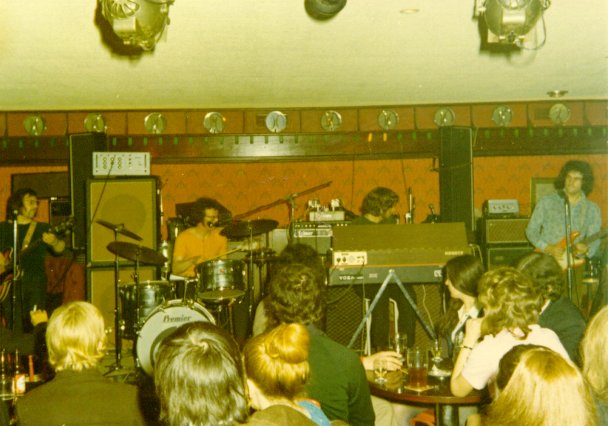
Anthony: Always based in St Annes at Brian’s parents house. Fabulous rehearsal room and later studio. We’d play clubs, youth clubs, sports clubs, pubs. Anywhere they would put on entertainment mostly in the north west area. Remember going to a gig in Wigan one night and we had to be set up before the club opened so they could turn the lights out before the audience arrived !! Class.
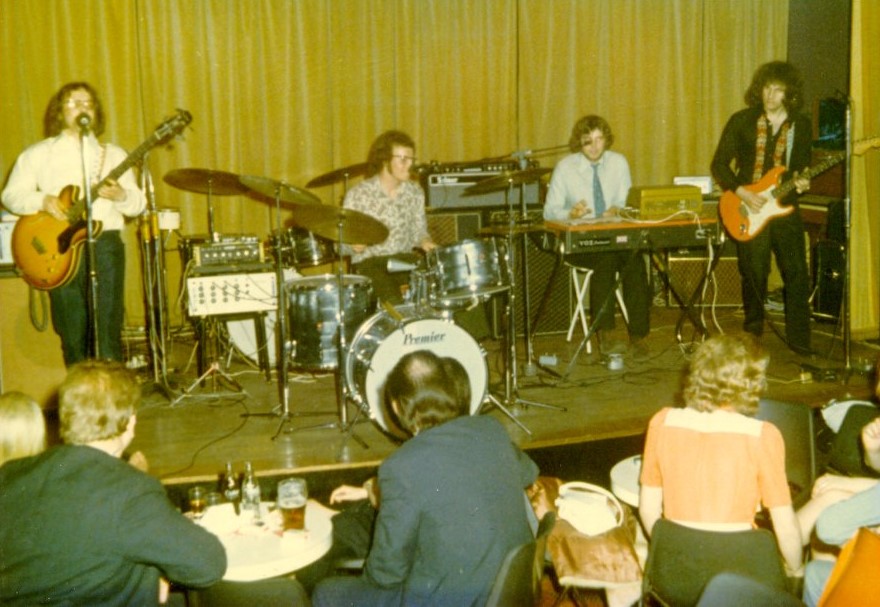
How did you decide to use the name “Complex”?
Lance: I’m not sure. I recall we were trying to think of a name and we wanted something that people would remember and could “roll off the tongue”. It also had to describe our music which I guess why we eventually chose “COMPLEX”. It was nice and simple, could be used on labels and posted easily. We were adamant that is was NOT “The Complex”, just “Complex” although invariably local posters went up incorrectly naming the band.
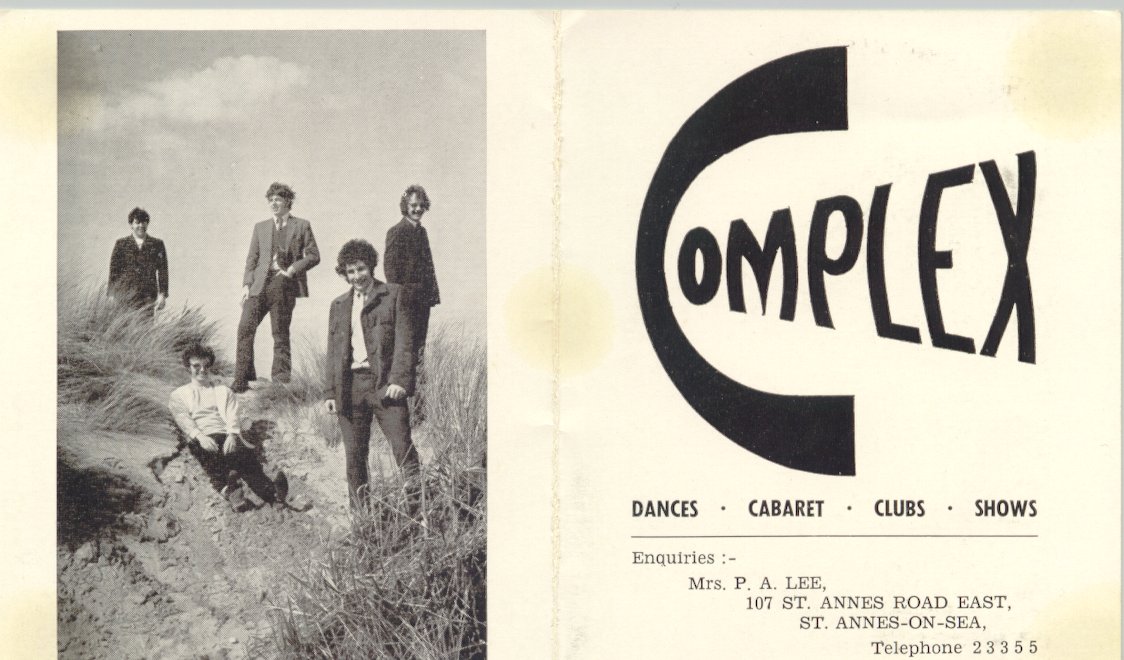
Anthony: Honestly don’t know the answer to the name Complex. I was always the baby of the group so I let them get on with it.
Brian: Ah – Glad you asked! At school in Art classes (at which I was lousy!) the teacher had on show on the wall a poster called “Inferiority Complex”. I thought the picture itself was amazing in that it purveyed the anguish and anxiety of a person with that problem. So I initially thought a good name would be “Inferiority Complex”. Then I thought – well we don’t want to be labelled inferior – how about Superiority Complex? But thinking more about it I decided that just “Complex” would be simpler and better anyway. So I suggested it and fortunately everyone agreed! Just like that! Tony then made a sticker set and stuck it on the front of his bass drum – but unfortunately it read: THE COMPLEX. Now my Mum said – “I don’t like that” and I agreed – it looked amateurish and that wasn’t the right name anyway … But how to change it without upsetting Tony??? Aha – all the band equipment was kept at 107 Studio … (My Mum and Dad’s house was 107 St. Annes Road East St. Annes and we used the dining room for rehearsals and occasional recordings. This fact was noted on the first album cover as well.) … Ready set up to go straight in for rehearsal … So unknown to Tony (until now!!) – Mum used to pick off part of the sticker – just a small piece every day … so it wasn’t too obvious that it was total sabotage … it was apparently just slowly disintegrating! Fortunately Lance (who had a very good graphics visualisation talent) offered to make a proper sticker that wouldn’t “fall off by itself”. (I don’t think even Lance knew what had been happening – but it was all for the greater good!). This episode ended up with the album cover picture and the excellent logo that we used from then on as the band’s trademark artwork. Result!
What influenced the band’s sound?
Lance: The sound just developed by itself but also took on a new dimension when Steve joined. He had no equipment so Brian and I went shopping and bought a Vox Continental organ and a Hohner Pianet and appropriate amplification and that’s what you hear on the records. Brian was always into a guitar sound with a lot of distortion from his heavy rock days at university (when appropriate of course). Tony and I just provided a very tight rhythm section over which the guitar and keywords worked. I had always been into jazz and avant-garde rock, particularly from USA so my bass lines tend to reflect that.
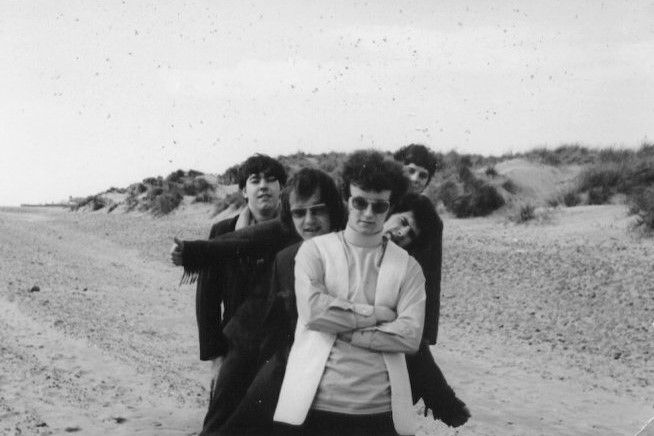
Anthony: Influences. In my case anything and everything. I tend to listen to a record as a whole, what goes into it, what makes it special. Steve Coe said a few years ago that I should have been a producer. In the late 60s I went through a rock stage. Loved Zepelin, Free (Paul Rodgers, one of my all time favourite singers ), Chicago and Blood Sweat and Tears, big band influence; have always liked a brass section from my soul days.
Did the size of audiences increase following the release of your debut?
Lance: Maybe slightly but not noticeably. I put down any increase in audience size to our reputation for putting on a good show, for playing a broad cross-section of music for all tastes and being able to play virtually non-stop for hours if required. We hardly ever went on stage with a programme. We all had hundreds of numbers in our heads and just moved on to the next one when Tony either told us at the end of a number or started with a certain drum beat to indicate what the next one was. Brian immediately had to stamp all over his effect pedals to get the desired sound for the next number.
Brian: We actually sold a few albums at our gigs – not many as the main purpose was to send to record companies and venues where we could get gigs. But we did sell a few – for the princely sum of (I think) £2 each!
I think the release of the second album helped to cement our reputation and audiences continued to grow as a result. We were then faced with the job of expanding territorially which is always difficult. At least we could market ourselves as COMPLEX from BLACKPOOL which later on became COMPLEX, The NORTHWEST’S PREMIER BAND Well you have to employ marketing techniques sometimes, don’t you!!
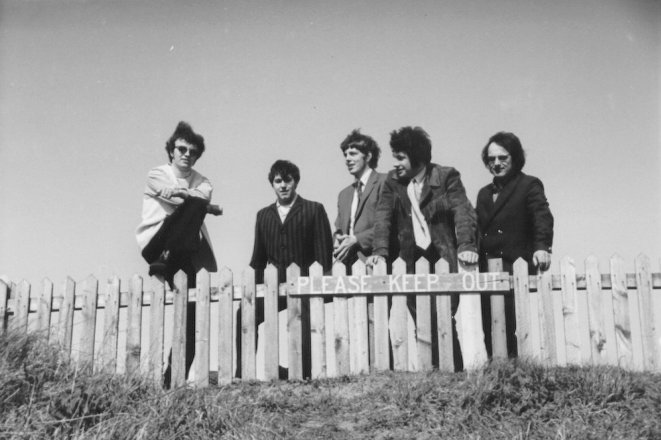
Brian: While on that subject, please note that our website(s) are available – bring up Google and enter Complex Blackpool Band and it should go straight to it. The main website is the one we used up until we disbanded in 2013 but you can access the earlier stuff by going to the last page of the above website and selecting various links (some of which now seem to be missing!! – grrrr – not my fault if other people alter their websites willy nilly!)
Anthony: Difficult to say. We used to sell the records at gigs for £1 but by that time we were pretty established and always looking to improve.
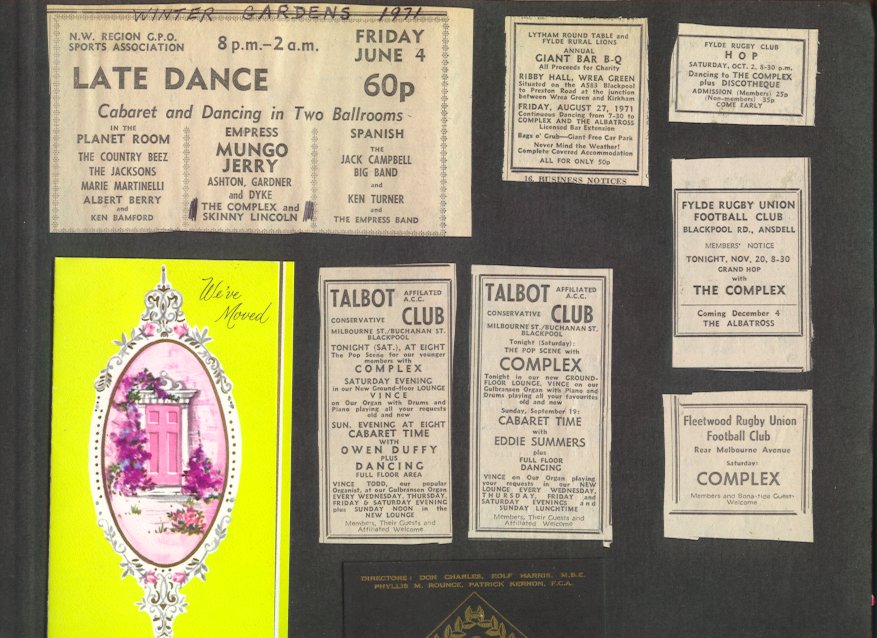
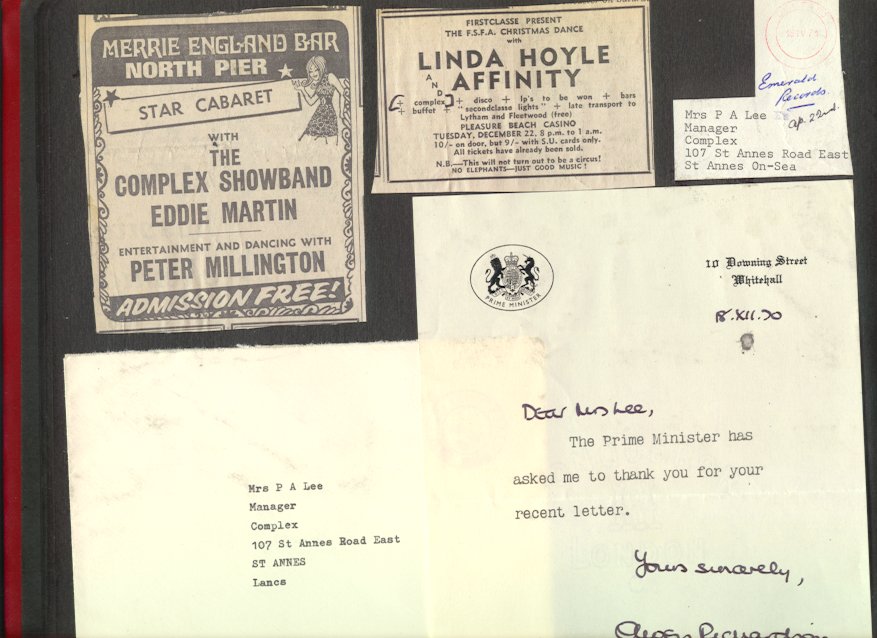
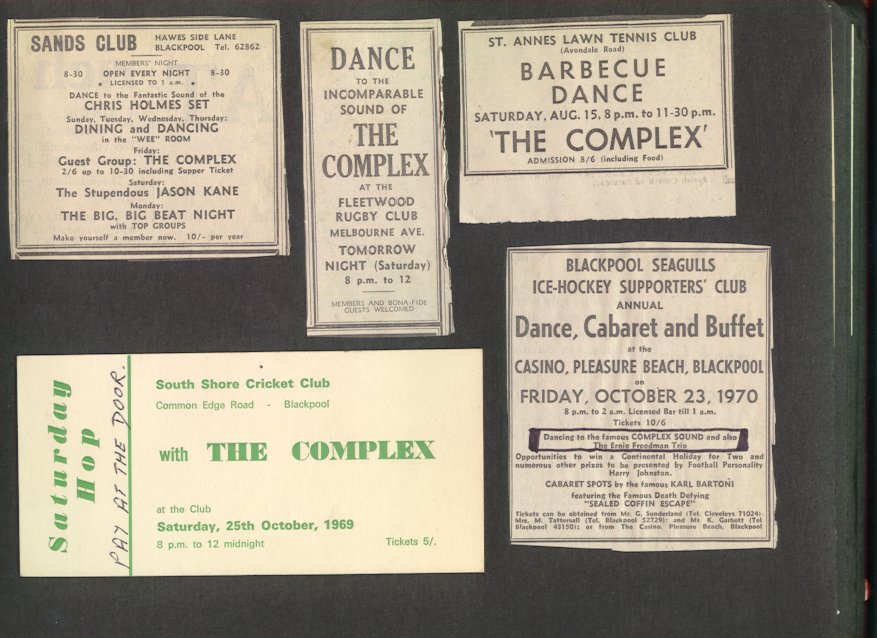
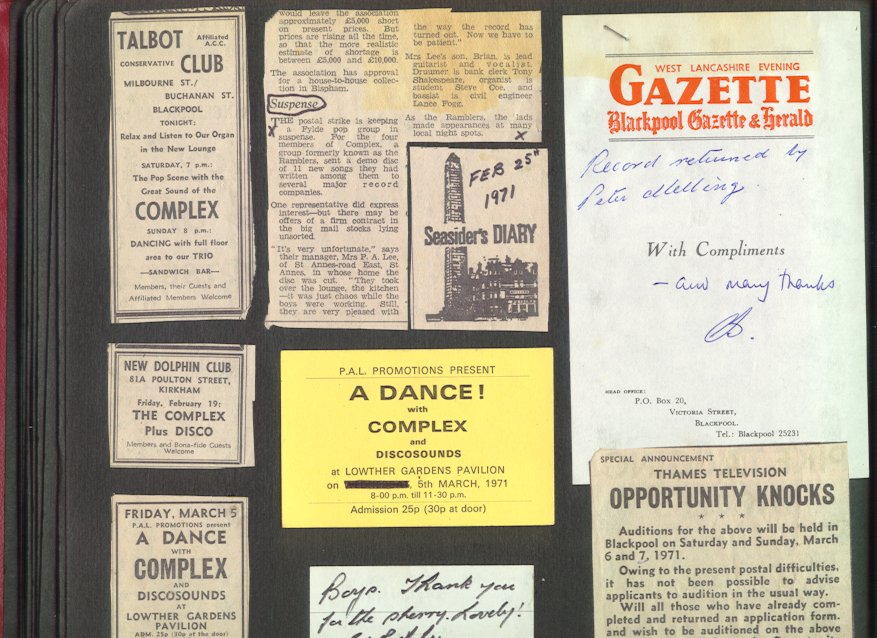
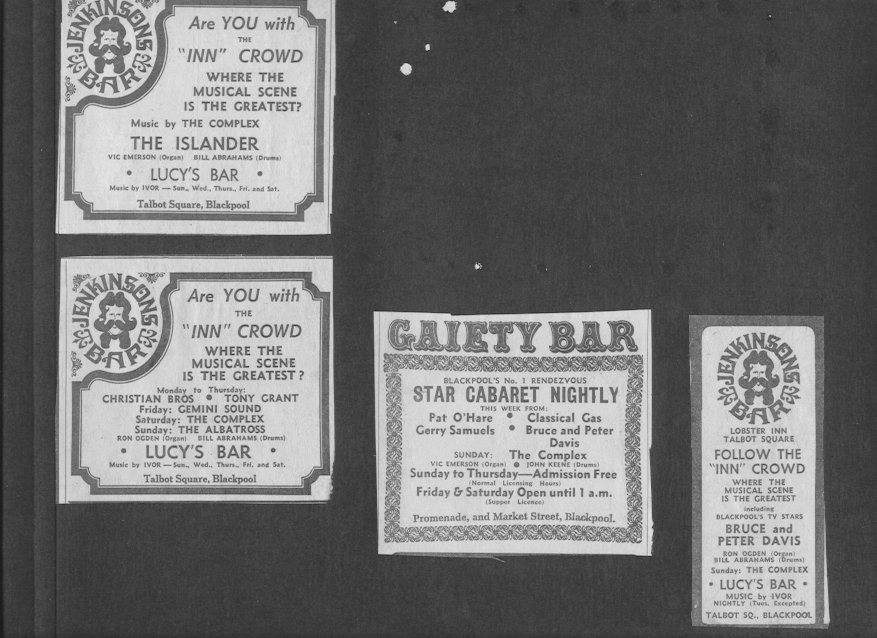
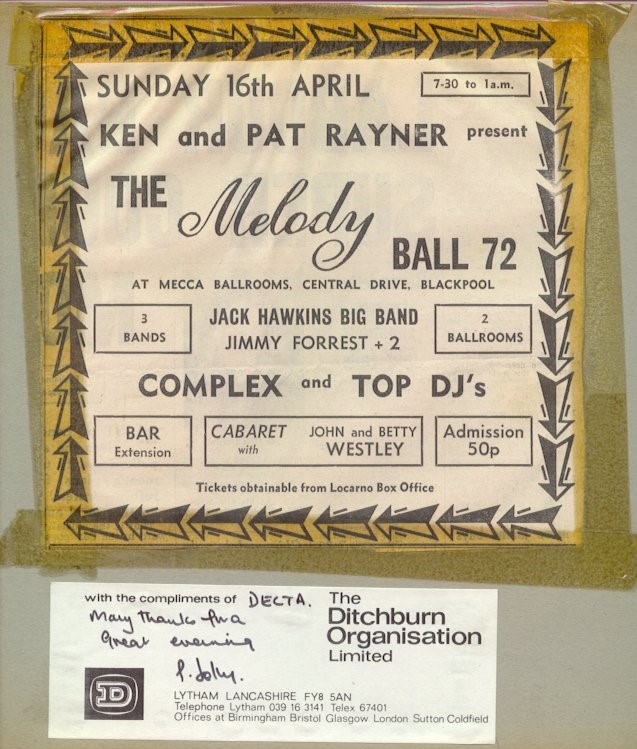
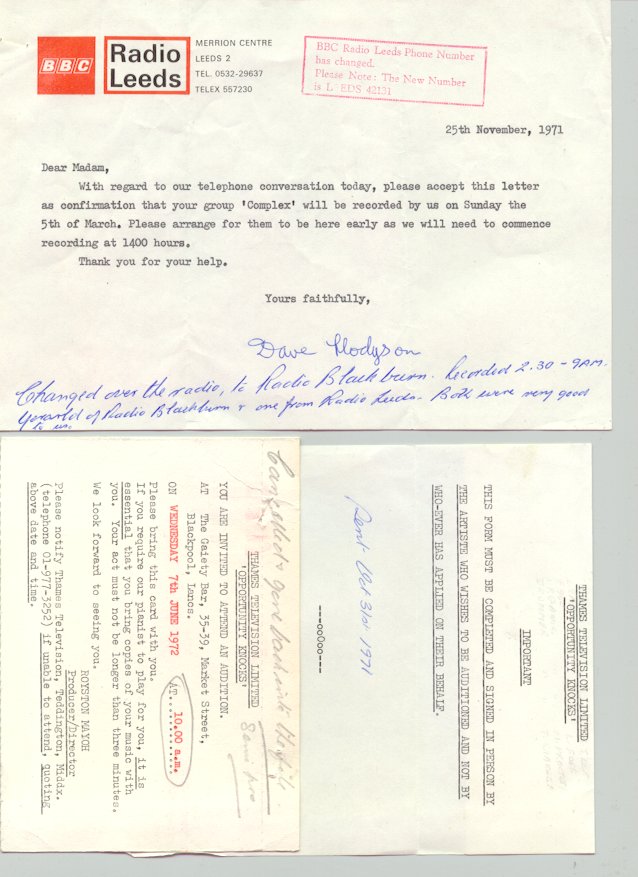
Where did you press your debut? How many copies were pressed?
Lance: The debut disc was pressed by Craighall Studios in Scotland. We had paid a visit there before for a recording session and decided to use their services to press the album. What a disaster! Approximately 100 were pressed because that was all you could before becoming liable for Purchase Tax – this was in the days before VAT had appeared. The idea was to make a demo but because we had so much original material that we thought was good enough, the demo single became a demo album. It was to “sell” the band initially, both the compositions and the musical ability of the band. However we also decided to make something of it and I designed a cover for it. I forgot to add on a little bit to the 12 inches to take into account the thickness of the record when I commissioned the printing so that’s why the covers soon came apart.
Brian: This was part and parcel of the history of the band – the record sleeves always ripped because of this little design flaw but most people accepted it – these discs are forty years old after all. However even when we told them beforehand about it some purchasers still complained! I offered to sellotape them to make them stronger but most buyers agreed that it was better to leave them as is to preserve the historical correctness of the item.
Anthony: Think Lance has told you about the pressings but without being pedantic, there were only 99 copies pressed. One more would have meant we’d have incurred Purchase Tax, the forerunner of VAT.
What’s the story behind your debut album? Where did you record it? What kind of equipment did you use and who was the producer? How many hours did you spend in the studio?
Lance: Steve had been with the band for some months and we had slowly been adopting and arranging his original compositions and incorporating them into the act. They were good. Quite a range of styles and content. So we wanted to make a record our achievements – hence the idea of a demo album which would also have the use of portraying the style of the band and hopefully getting an audition with a record company. I certainly had ambitions of having a few years performing live and then becoming a session musician. [Back in university I had flunked my finals and wrote to EMI and Decca enquiring about getting a job in recording studios. It was only when my professor encouraged me to re-sit my finals and I went on to take an additional year to get my honours degree that I stuck with engineering although many years later I did turn professional musician for a few months – that’s another story]. The tracks were recorded at “Studio 107”, i.e. 107, St Annes Road East, i.e. Brian’s parent’s house. We had made friends with Graham Atkinson who was a studio engineer with Granada Television in Manchester. He had built his own audio mixer and we set that up in the kitchen and used our rehearsal room as the studio. The production was all a bit hit and miss with Graham using his professional skills and between us getting an acceptable balance for each number. I think it was recorded on Brian’s Vortexion tape recorder – an enlarged version of a Ferrograph operating on 1/4inch tape. You could record in stereo and then flip flop for adding additional tracks – just as the Beatles had done in their early days. Multi-track recording was still unknown. I think we used a mixture of microphones, some of ours and some that Graham had brought with him. We were comparatively green when it came to studio equipment and techniques. I think the entire album was recorded over a weekend and then some “tidying up” done by Graham later on, probably a total of 15-20 hours for everything.
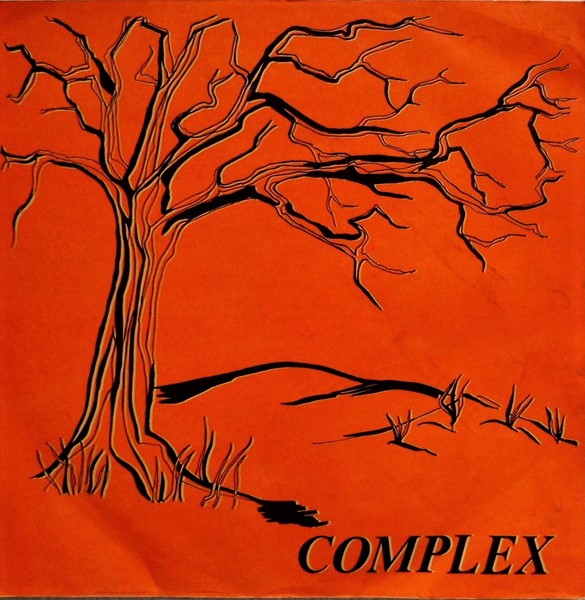
Anthony: Again, Lance has covered this aspect comprehensively. First backing track session was at The Plough pub in Freckleton and the rest was done at 107 Studio, usually on Sundays. I knew very little about equipment in those days so can’t really help. I was more a sound person. Time spent I cannot recollect but it was interesting.
Please share your recollections of the sessions. What were the influences and inspirations for the songs recorded?
Lance: The songs were basically all written by Steve with his friend, Bob Mitchell, providing the lyrics except for one for which Tony write the lyrics. His influences were many but he just wanted to write songs and carve out a career as a song writer and producer. I can’t speak for Tony and Brian but my influences were also many and varied, gathered from my classical training and exposure to blues and jazz. On the 40th anniversary CD cover insert I have made a short biog of each of us and it includes our influences as far as our favourite bands are concerned. There is some overlap but it shows the diversity of our backgrounds. The mere act of transposing Steve’s songs which were originally conceived on a piano, into parts played by a group had the effect of transforming them into our own “trademark”. If you take Steve’s own keyboard technique and then marry it with Brian’s guitar sounds, Tony’s voice and drumming and my bass lines the result is Complex. It just happened that way. We weren’t consciously trying to achieve a particular sound or style, it just developed of its own accord. I think Steve might have had something specific in mind when he wrote his music and Bob his lyrics but the rest of us just added component parts which we felt went with the original. Occasionally Steve did have quite specific requirements for guitar, bass or drums but by and large we interpreted the original piano score and then developed it spontaneously. The sessions were great fun because we were making something which we felt was worthwhile, which might get us better known, which might even get us a recording contract and were an important learning curve about recording techniques. They were also frustrating because sometimes it seemed impossible to get a “finished” product.
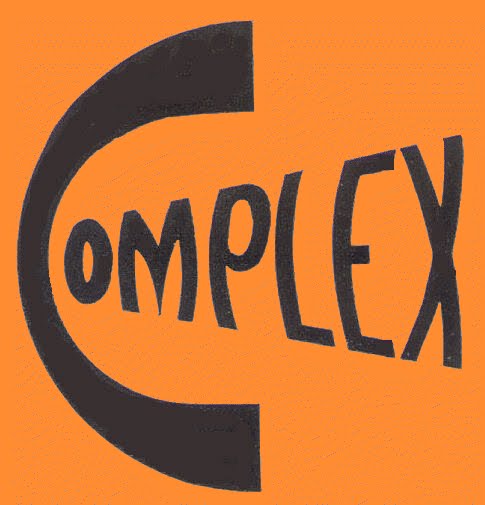
Anthony: Influences were diverse and everybody had their say. As an example, Josie was recorded somewhat tongue in cheek as a reggae spoof with no dampening on the snare drum which gives it that ring.
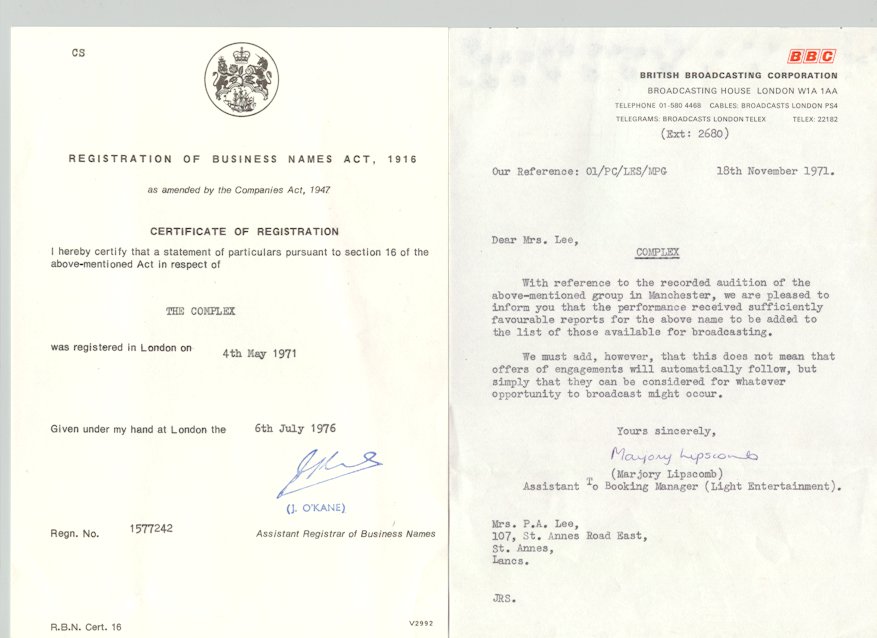
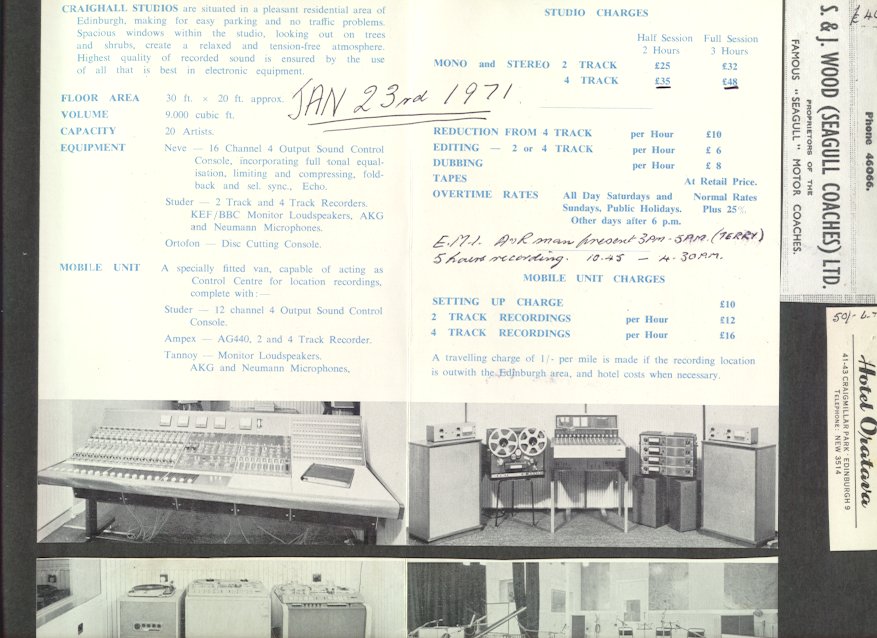
Would you share your insight on the albums’ tracks?
Anthony: Can’t remember individual tracks but I had written the lyrics to “Live For The Minute” and Steve did the tune.
Lance: “Funny Feeling”
Shades of Chicago in the transitions. I liked the variation of tempo in the number and the chord progressions. Right up my street – plenty of variation but it still held together. I have no idea what it was about.
“Message From the Year 2000”
A rather pensive little ditty. I think Steve had been reflecting on life in general and probably a disappointing love affair.
“Green-Eyed Lucy”
At last Brian gets a chance to let rip. Quite a good bopper and always went down when played live. Complex’s version of a teenybopper number with heavy overtones.
Brian: Popular on Youtube where a pretty young lady called Lucy Hale has “borrowed” the song for a series of modelling session photos! Cheeky but I have no objections!
“Josie”
OK a touch of reggae just for a change! This was just for a bit of a laugh. We were messing about and just started to give it the Caribbean treatment. Brian has to have the last say imitating a banjo.
“Witch’s Spell”
Head-banging with awkward timing in the chorus which Steve deliberately inserted just to make it different. The screams were courtesy of Granada TV sound bank. We needed something dark and satanic and this filled the gap nicely.
Brian: Rated by a recognised psychedelic rock pundit as our best track containing “Howling Lysergic Guitar Licks”. Thank you Patrick – I like that!
“Norwegian Butterfly”
Steve again in his ballad mode again another unfulfilled love affair. He was quite a troubled man.
“Self Declaration”
I think we all enjoyed playing this one. We didn’t understand the lyrics but tried to make it somehow “deep”. A very complex number that explores all aspects of the current music scene. Some nice little intertwining melodies. Quite jazzy with several climaxes.
“Images Blue
In a very similar vein to “Norwegian Butterfly”. Use of some double tracking on Tony’s voice makes it stand out. I’m not too sure the instrumental bit in the middle works as it’s a bit jerky.
“Storm On The Way”
Brian gets stuck on morse code. The trick of using guitar to emulate morse code transmission was used by other bands and we were convinced they had stolen the idea from us. This one really gets going with some nice riffs.
“Mademoiselle Jackie”
A story of a stripper in Paris representing the loosening of morals in our society. Quite a nice little number, one which I though might have been a commercial success. I wonder if Steve had been inspired by “Those Were The Days”, the big hit for Mary Hopkin.
“Live For The Minute”
Another typical 1960s mixture – experimental with tempo changes and complex chord structures. Fairly introspectful.and critical of our wasteful society. I tried to introduce some aspects of Spirit’s music into this particularly Brian’s guitar tone and sustain.
Were you inspired by psychoactive substances like LSD at the time of writing the album?
Lance: No. I was never into drugs and I even gave up smoking cigarettes back in 1971. I liked my pint of Boddingtons and was getting into wine. That’s about as far I went with “losing my mind”.
Anthony: Might seem boring but to this day I have never knowingly taken an illegal substance. Sorry.
Brian: Never. My Mum smoked cigarettes and my Dad cigars but my brother and I – after trying half of one of Mum’s cigarettes when I was 11 – decided that it tasted vile and never touched one ever again. I also never touched drugs – I think my parents pointed out that “your body isn’t designed to handle that so don’t risk it” – that seemed logical to me as well! And this was in the 60’s!!!
How pleased was the band with the sound of the album? What, if anything, would you like to have been different from the finished product?
Brian: Unbelievable!! A classic SNAFU! Basically I think my Dad was hoodwinked by some chancers who made great promises, quoted a fairly keen price but delivered rubbish. The tracks were ridiculously quietly recorded on the pressing so any inevitable clicks and pops stood out like the proverbial DB! Disaster on an apocalyptic scale – we were absolutely gutted! All that work virtually destroyed! IIRC they wouldn’t even let us have the tapes back so we couldn’t get them pressed elsewhere! Even more galling – basically the tapes were reasonably good. However there are CD versions available from Tenth Planet Records I think – they were derived by getting as many copies of the album they could and editing out the clicks and pops as best they could and the result isn’t actually too bad! This was done with approval and assistance of the band. Several other “extra” copies over the allowed 100 appeared magically over the years – without our approval or even knowledge!! And of course no royalties at all! But we know who you are!!!
Lance: The pressing was a disaster. I don’t know what Craighall Studios did or how they thought that they had produced an acceptable product. We should have gone back and demanded a re-run. The noise level is intolerable and the sound is distorted. I always felt that the actual recording didn’t sound commercial enough. It didn’t feel as if it had been recorded in a professional studio. It probably needs compressing. However it was acceptable. It was the pressing that wasn’t.
Anthony: Quality of first album was very disappointing. Second one ok but material not as good as first. I wished I had known then what I know now about good recordings, but maybe then they wouldn’t have the charisma they appear to have.
Did the band tour to support the LP?
Lance: No. I think we were pinning our hopes on getting auditions with recording companies more than anything. We didn’t realise or expect that the album would enable the band to work extensively without the assistance of a record company. I think we saw a recording contract as the way forward.
Anthony: No, we were semi-pro and I think we made the records because we could, had the material and just wanted to get it down for posterity.
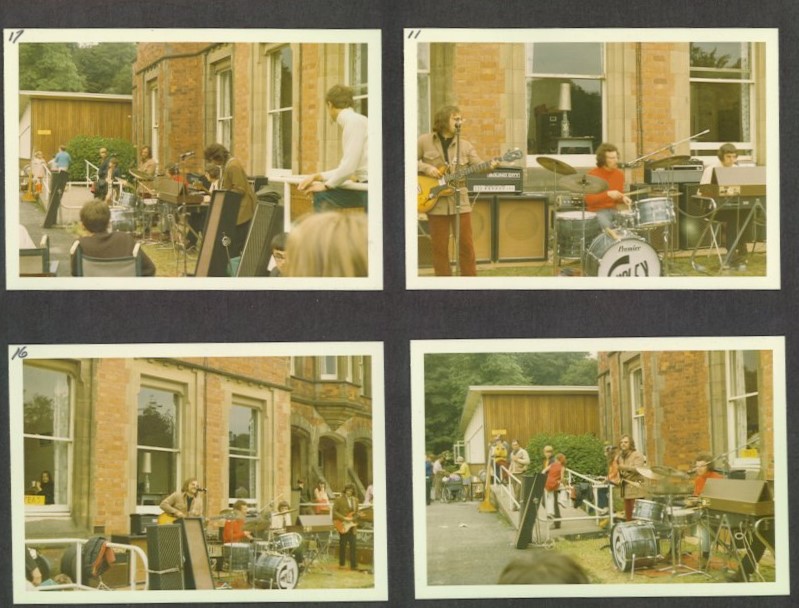
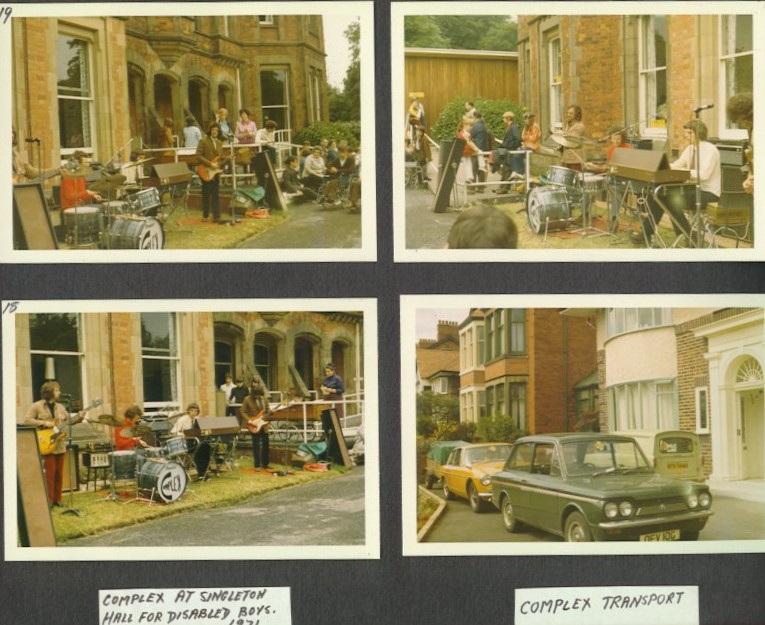
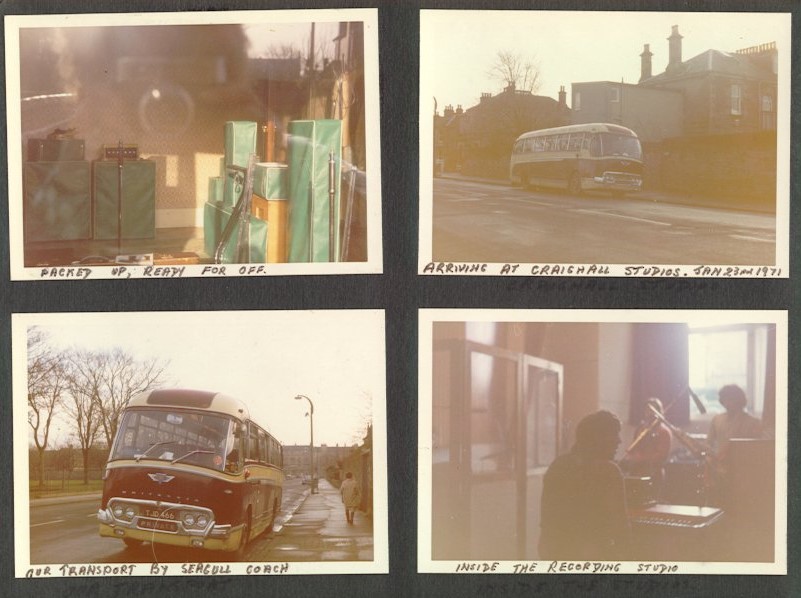
Was there a certain concept behind the album?
Lance: Not really. The common factor was Steve’s music and Bob’s lyrics and our development of those basics into a finished group track.
Anthony: Don’t think so.
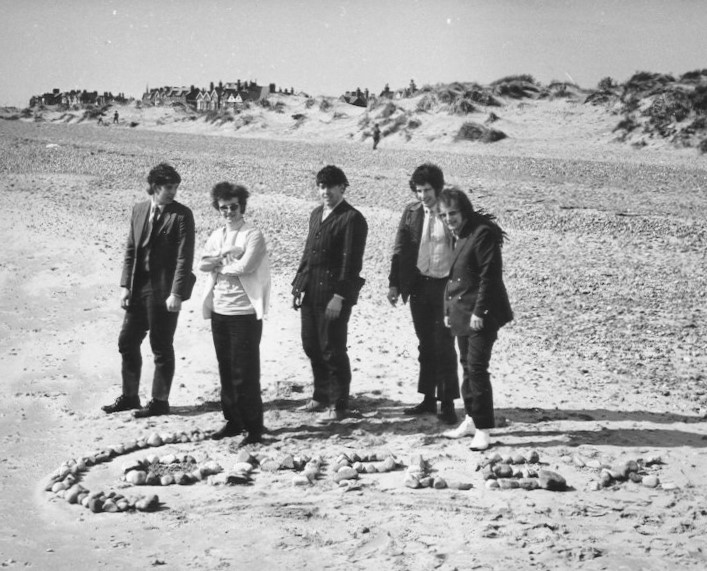
How about your second album? The Way We Feel was released by a label called Deroy. How did you get in touch and what are some of the strongest memories from recording the second LP?
Lance: The second album was seen as merely a continuation of the first. We had so much original material that, by this time, we were playing in public that we needed to make another album just to save the ideas for perpetuity. The whole process was just that much easier because we had learnt a lot from recording the first one. This time we took over the large room on the first floor of The Plough pub in Freckleton with the same gear, same producer and same procedures. This time we were a little more adventurous in over-dubbing and editing but some of the tracks were recorded in one take simply because we had been playing them live for some weeks and they were already “the finished article”. Whatever we did and however it was done, we were not going to use Craighall again. We used a relatively local company, Deroy, who were based in Carnforth. I think Mrs Lee (Brian’s mum) rang them and organised everything. It was recorded only 7 months after the first one and the same regulations with regard to number of pressings re: purchase tax applied. The result is a vastly improved record and I think there is a lot more confidence in the way we perform and make the recording.
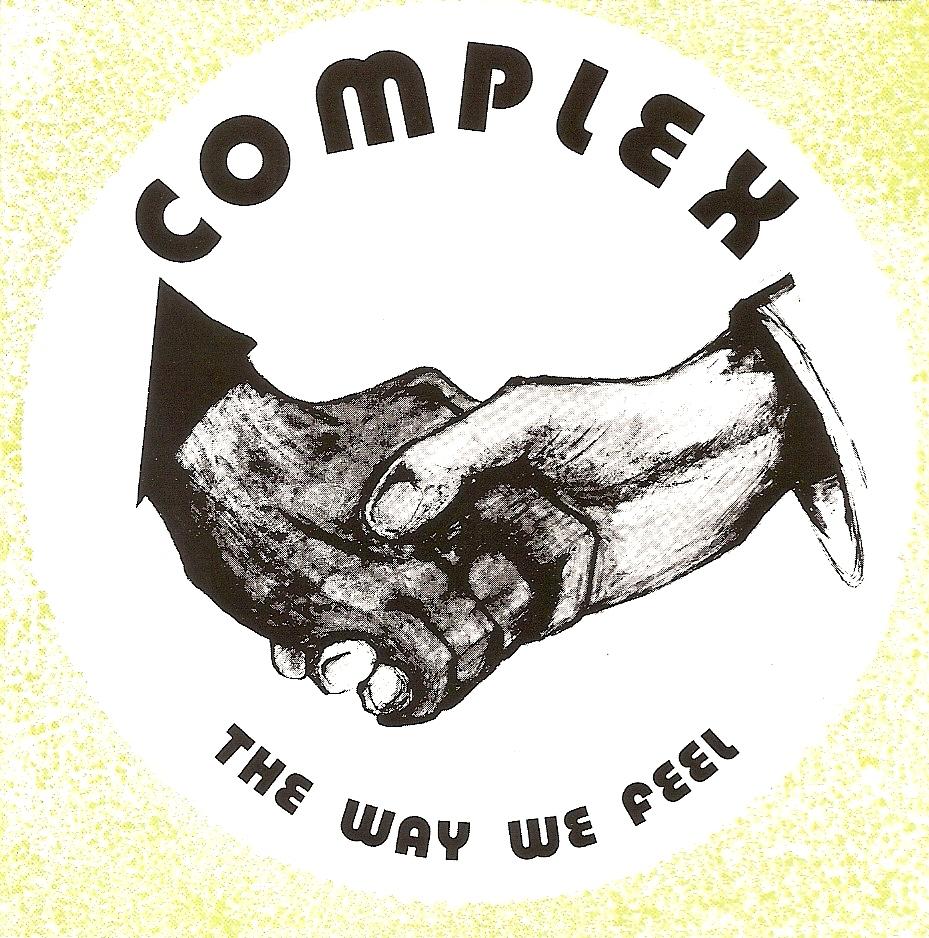
I don’t think there was a conscious effort to develop the “Complex sound”, this album was seen purely as a continuation of the first although this time it did have a title. That was taken from the track “The Way I Feel” which we considered perhaps the most commercial song we had produced and actually featured it on an “Opportunity Knocks” audition when we asked if we did anything of our own. Hughie Green and his producers were suitably impressed but we still didn’t get on the show!
Brian: Well we were told we HAD passed the audition for OPP KNOCKS – Hughie said “well done guys!” – but then the whole show got cancelled – Hughie and all!!
Lance: Again, the recording was seen as a demo with a view to obtaining a recording contract rather than to portray Complex as some kind of fringe band. We certainly didn’t consider ourselves as psychedelic or fringe in any way. We were a hard-working gigging band who played a variety of music to cater for all sorts of tastes although we did enjoy playing for listening to rather than for dancing to. We did both.
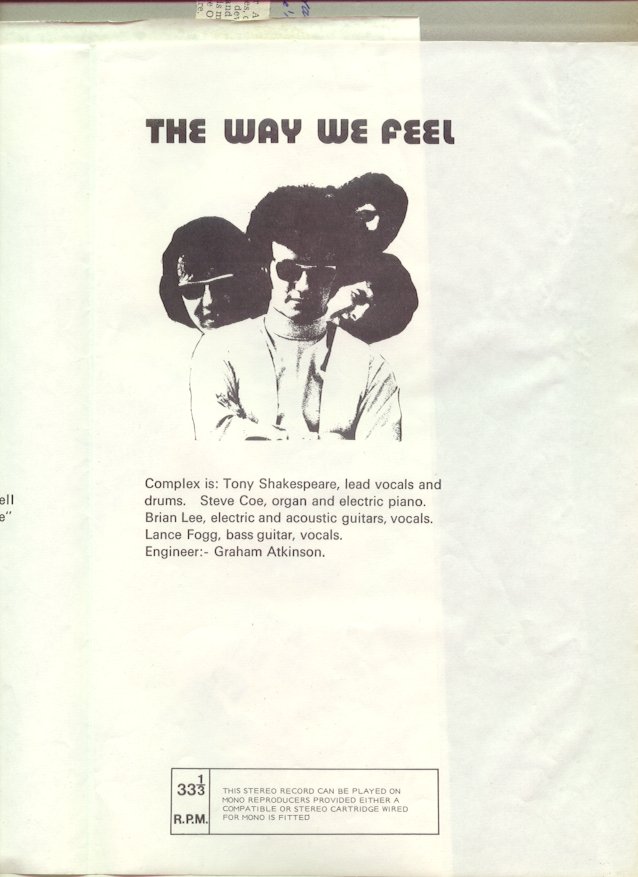
Anthony: Second album was done I think as we had more songs and the addition of the electric piano altered the sounds available.
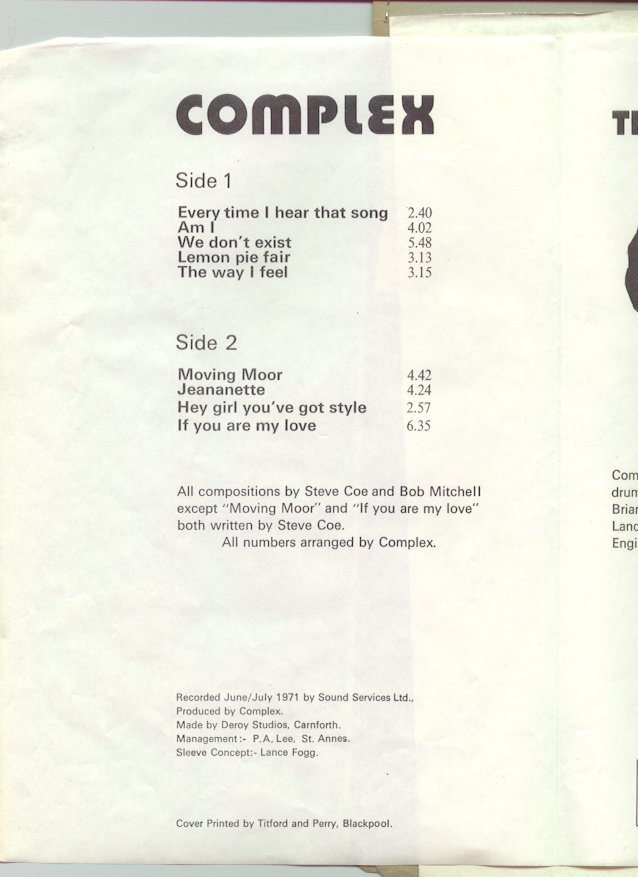
What happened after the band stopped? Were you still in touch with other members? Is any member still involved with the music?
Lance: The band sort of stopped in rather a strange manner. I had left previously because in 1977 we just seemed to be going nowhere. I had a year out with a non-commercial band, Contraband, which had some small success on the NW university and college scene. When that all collapsed I went back to Complex and played though to Christmas that year (1978). Complex had in the meantime changed management, experimented with Tony out front as vocalist with a new drummer and had even toyed with the idea of changing its name. We did some gigs over the Christmas and New Year period and I remember packing up the gear and asking Keith, the then keyboards player, when was the next gig. He didn’t know and suggested I ask Tony. Tony had gone, Brian didn’t know and that was the last gig the original Complex played. I think Tony had become very disillusioned with the music scene and just wanted a break.
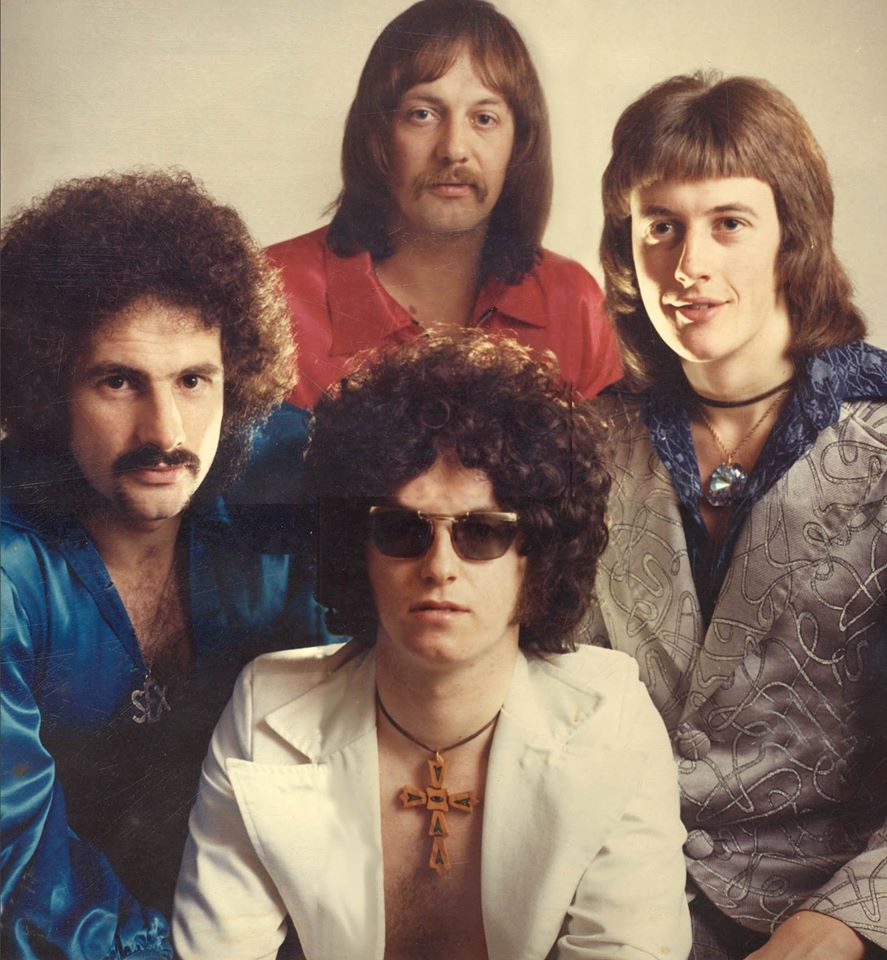
We still kept in touch, Brian, Tony and myself although we went our separate ways musically. Tony joined “The Senators”, a very successful Blackpool function band, Brian got involved in the local folk music scene and I kept going in a succession of cabaret and rock bands, the most successful being “Aly Havana”, a local 5 piece “cabarock” (cabaret/rock) band which travelled extensively across the north of England. My engineering then took me overseas to Qatar where I formed a group “Corniche” which at the time was the only live band in the country. We collared the market and played to audiences from many nationalities in hotels and embassies and even supported Freddie and the Dreamers on their Middle East tour. On returning to UK I attempted to start up a jazz-rock outfit which I named FY7, FY being the post code for the Fylde Coast and there being 7 in the band. We didn’t last long because there was very limited demand for that type of band in an areas which was very heavily into cabaret and cover bands. I was living in Blackpool but working in Manchester at the time and was asked to join a Manchester-based heavy rock band called “Stircrazy” which kept me occupied for a number of years up to about 2005. However several years on in 2008, I got a phone call from Tony. “How would you like to reform Complex?” I was asked. He was still playing in The Senators but they were cutting back on gigs and Tony had some time to spare. So we dragged Brian back into playing and added another member. However this time we decided to add another guitarist, Dave, in order to recreate the “original” 1960s sound and concentrate on cover versions from that era/ The idea was for it to be very much a part time hobby rather than commit ourselves to anything big. However, wanting to “do things properly” we soon started to gig back at the levels that Complex had used to. We again became quite well known. However, not this time. Tony had commitments – the Senators, his duo and then started a solo career so Complex came fourth in the pecking order with regard to getting gigs so eventually we called it a day after a very enjoyable 4 years. Tony is still singing, I have my small studio and play from time to time with Blues or Soul bands but I don’t think Brian is making music in any format. We still stay in touch. I have a long-held ambition to re-create some old Complex numbers from across the years of our existence (1968 to 1978), rework them with brass and strings and take them onto a live stage with Tony, Brian and Keith (the third and longest serving keyboards player, who knew Steve at school) augmented with additional musicians. It will probably never happen.
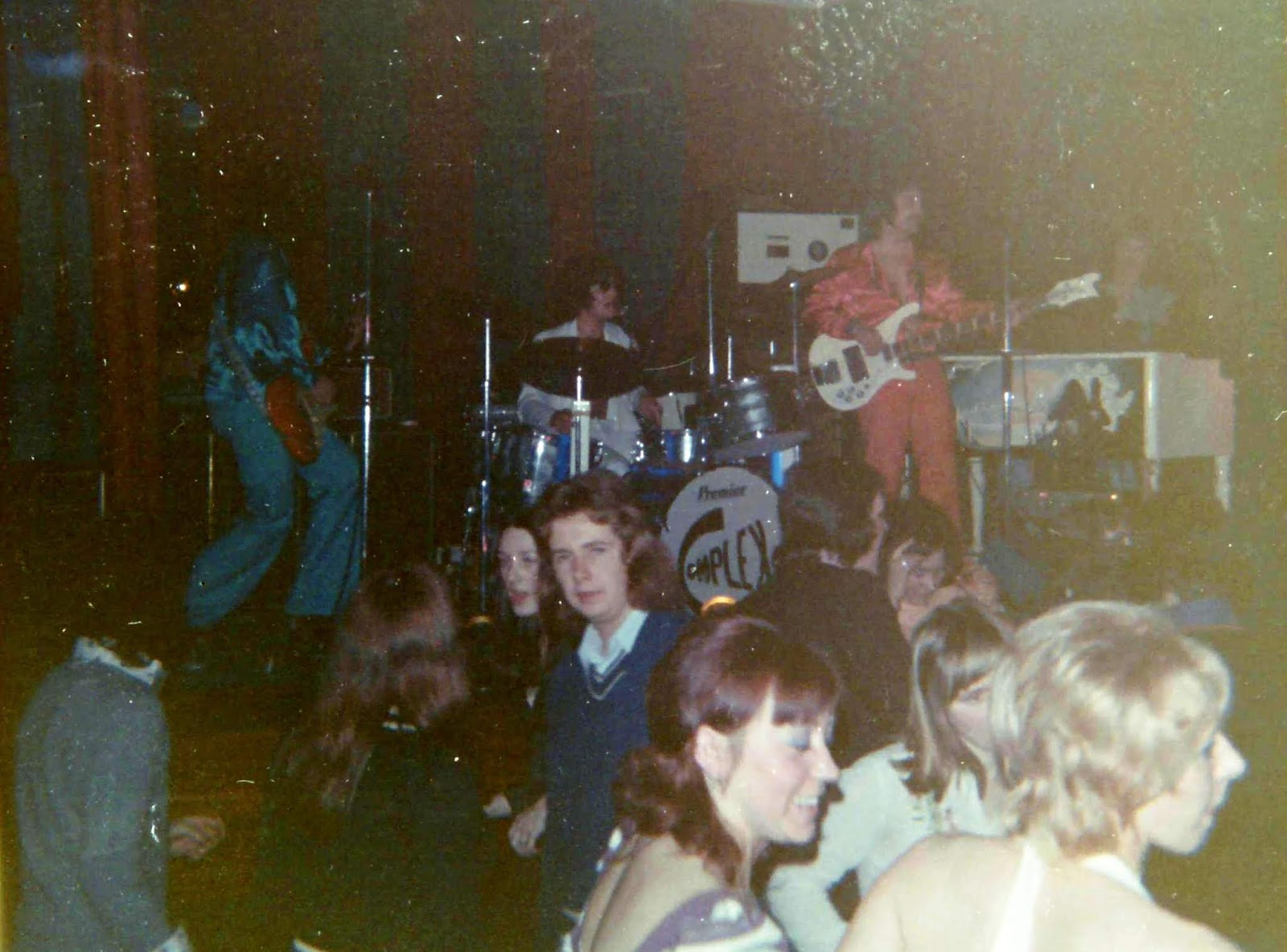
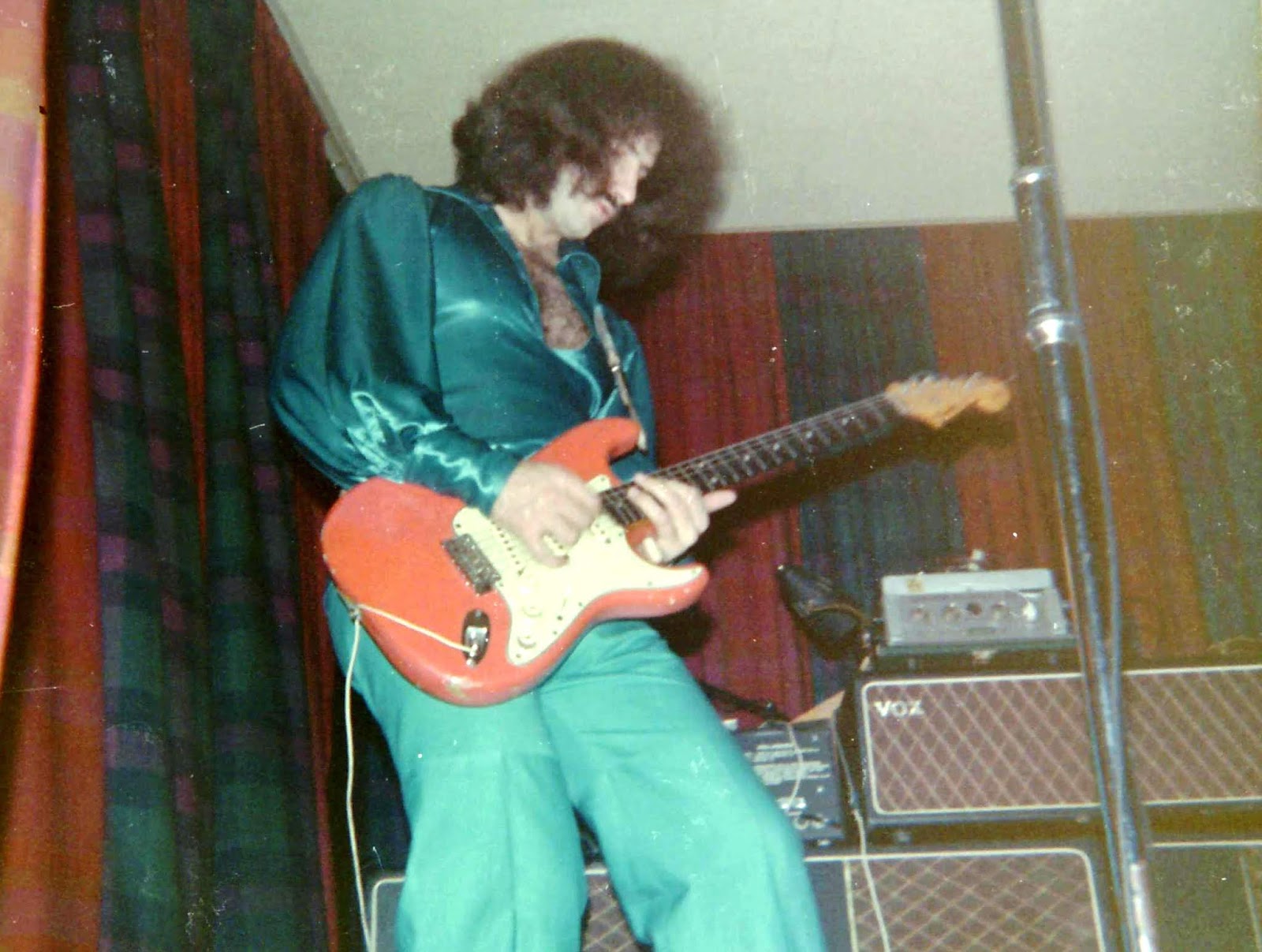
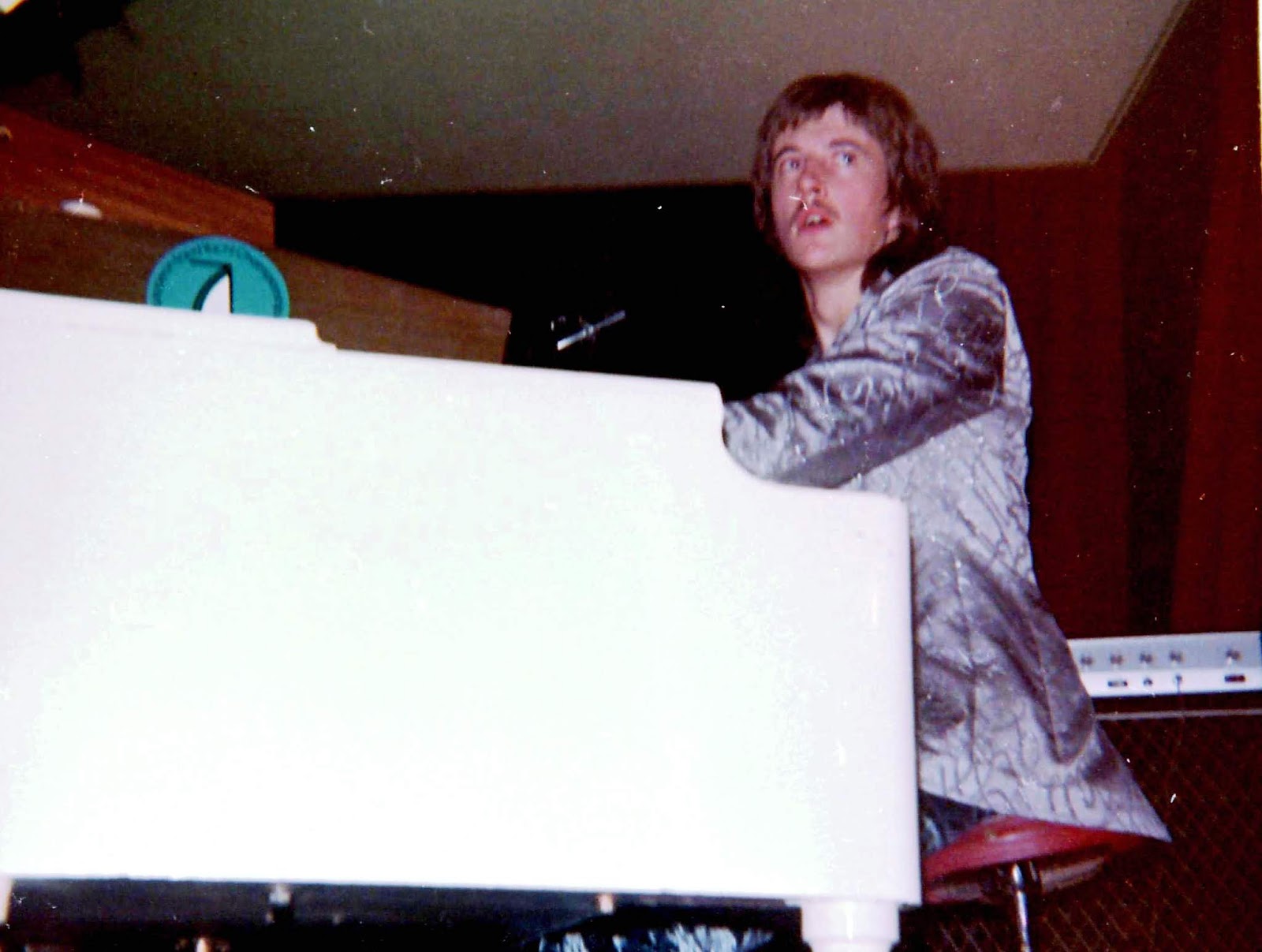
Anthony: Band stopped in 1978 but reformed 30 years later for 5 years with 3 of the original members. Tony is still working as a self contained singer/entertainer. Steve passed away but Tony Brian and Lance are still in touch and all live quite locally to each other.
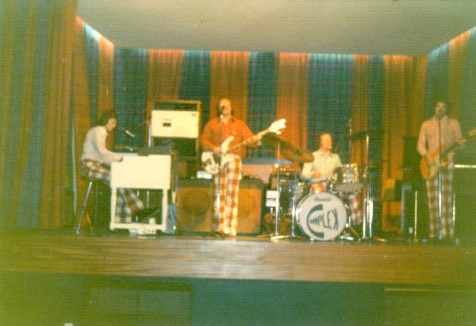
Looking back, what was the highlight of your time in the band? Which songs are you most proud of? Where and when was your most memorable gig?
Lance: It was all good. Playing a band is one the most enjoyable things I know. When everything goes right, the music just flows and the audience are enjoying it, the buzz is fantastic. What the public don’t appreciate is the hard work that goes into making a successful band. It doesn’t just happen. You have to work at it. But when it all goes right its really worthwhile. Complex had three keyboards players in its time – Steve 1970-71, Mike 1971-72 and Keith 1972-78. They each brought their own style to the band and Complex changed accordingly, but only slightly. Steve was a genuine “song smith”, he loved writing all types of music, Mike was heavily into blues and experimental and Keith was an all-round musician who could play anything. We performed original compositions with each of them and they were all of a very high standard. There are some songs which stand out. “The Way I Feel”, “Storm On Way” and “Green Eyed Lucy” from the Steve Coe era, “The Wizards Of Pung’s Corner” during Mike Proctor’s reign and “Smiley Ann” and “Downtown” during Keith Shackleton’s time. Complex have had some good gigs and some memorable ones. I think the best was when we supported Mungo Jerry and Ashton, Gardner & Dyke in the Winter Gardens, Blackpool and blew these top professionals off the stage. Another good ’un was when we supported the Detroit Emeralds up at the now-defunct Pavilion in Cleveleys. Their backing band turned up, asked if they could use our gear and not only loudly applauded us but invited us to join in a finale on stage with them.
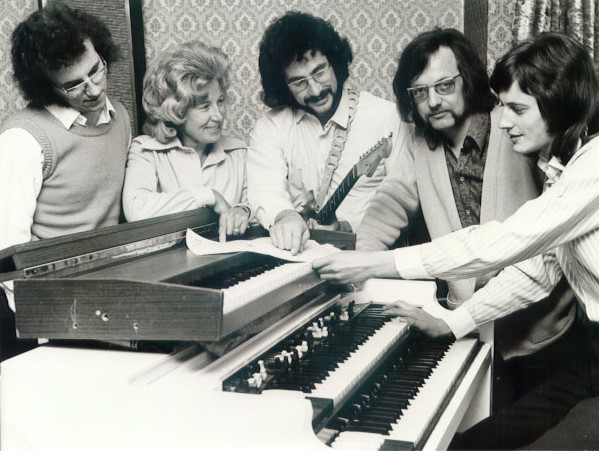
Anthony: Highlight was a gig at the Winter Gardens in 1971 supporting Mungo Jerry and Ashton Gardner and Dyke. Audience of some 2000 plus people. Played “The Way I Feel” and it went down almost as well as anything the headline acts played. First proper recording session in 1975 was memorable for various reasons. Think Steve’s organ playing on his tune “Moving Moor” first class.
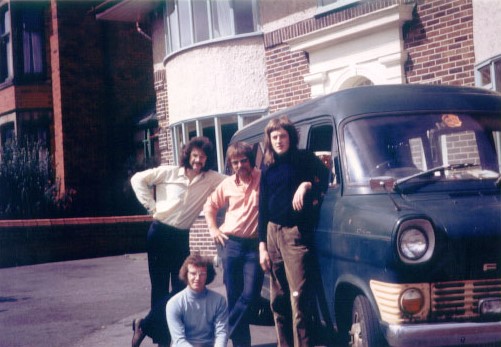
What are some of your favorite memories from band and the 1960s in general?
Lance: The 1960s and 1970s were great times for popular music. The advent of rock’n’roll, the final demise of Tin Pan alley, the arrival of the Beatles, the dawn of the rock concert, the development of modern recording techniques, the freedom of expression within music, pushing the boundaries of stereotypes, the mixture of genres such as jazz-rock, country-rock, classical rock, heavy rock, blues-jazz, etc., I wasn’t all that taken with fashion fads although I look at photos of me taken then and wonder about my appearance. I drove an MGB GT, a great car and I always remember when we did a special gig at Jenks Bar in Blackpool one night and as we were announced it was pointed out that there wasn’t stitch of denim on the stage – we were all in satin bomber jackets and loon pants. How times have changed!
Anthony: Nothing really. Just enjoyed it.
What were some of your favourite bands?
Lance: Back then: Spirit, Chicago, Three Dog Night, The Beatles, Steely Dan, Electric Prunes, Love, The Doobie Brothers, Yes, ELP.
Brian: The Doobie Brothers, Steely Dan, Three Dog Night, Chicago (thank you Lance!), King Crimson (The Court of the Crimson King was a mindblower to me!)
Anthony: Favourite bands. Too many as I tended to listen to songs. Beatles naturally, Hollies. Just too many.
Is there any unreleased material?
Lance: Yes. I believe there are some acetates and recordings which we made with Mike Proctor on keyboards when we had a session at Radio Blackburn (BBC) and I am trying to find out if Radio Merseyside (BBC) recorded a NW final of the Melody Maker National Rock contest back in 1972 when we played the 15 minute “Wizards of Pungs Corner”.
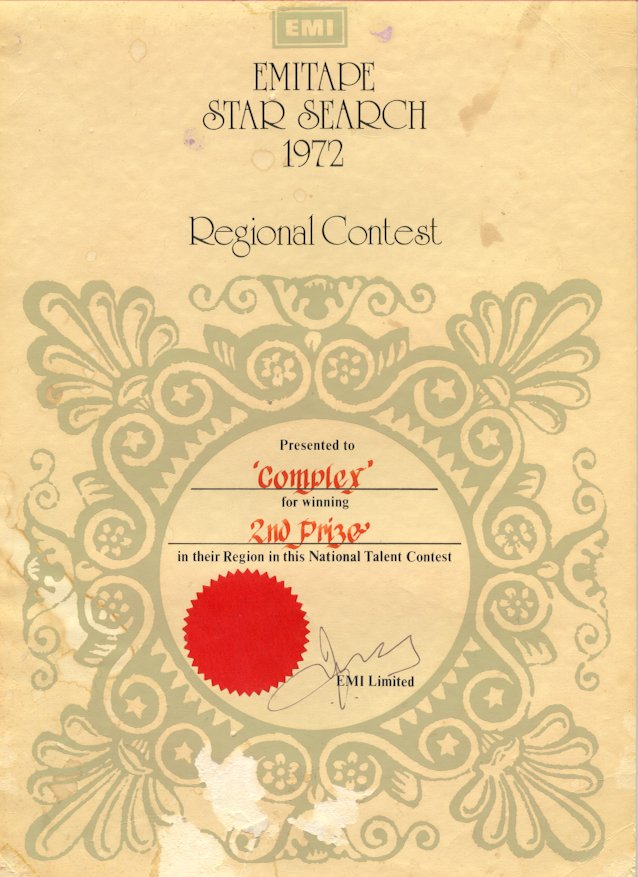
I have some live recordings of Complex also and Brian possibly has some.
Anthony: Yes but not from the Steve Coe era. Think Lance has told you about that. Also there are loads of demos from the Kieth Shackleton era.
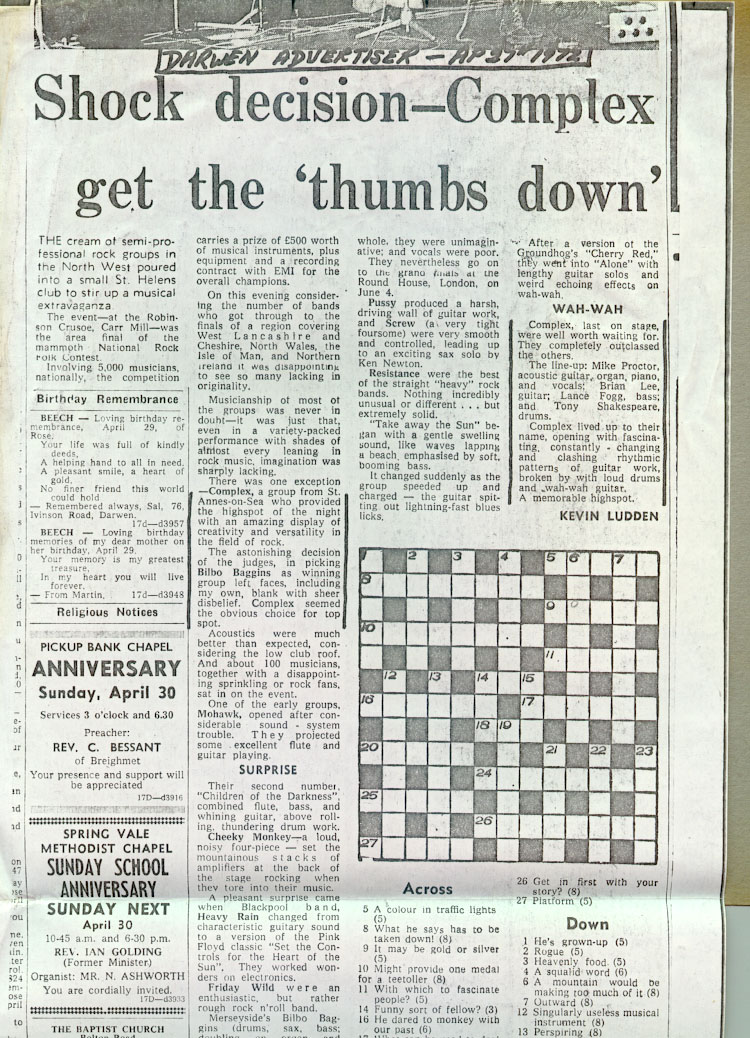
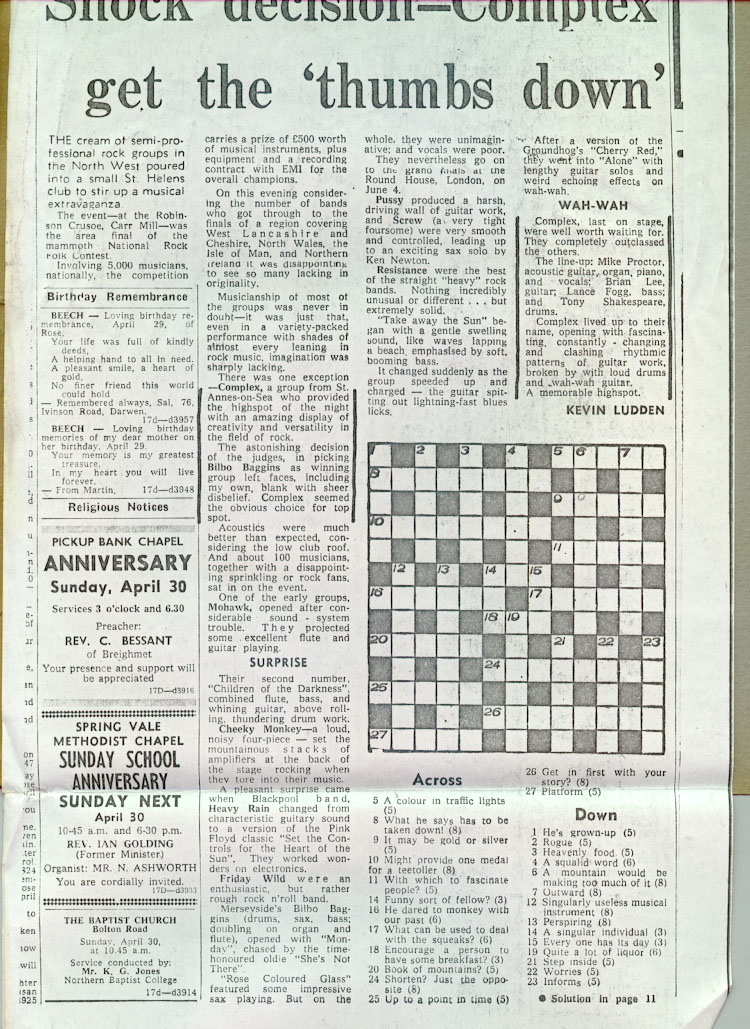
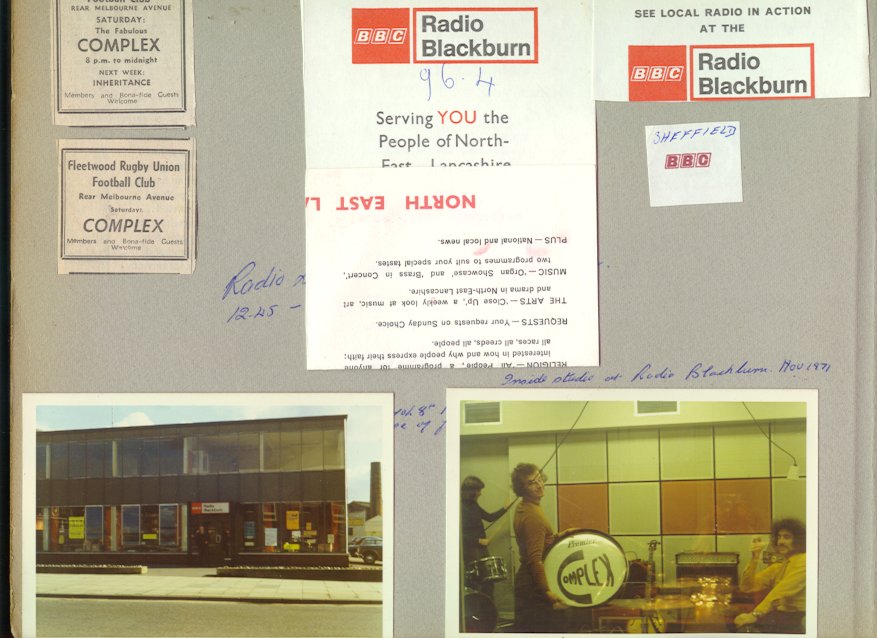
Let’s end this interview with some of your favourite albums. Have you found something new lately you would like to recommend to our readers?
Lance: Oh geez! I can never answer these type of questions. I get a complete mental block. Yes – anything by Seal. He has an amazing voice. Also anything by Fourplay – incredible jazz, amazingly melodic. Anything by Donald Fagan – keeps the spirit of Steely Dan going. Ottmar Liebert and Luna Negra – internationally acclaimed but unknown in UK.
Brian: I am told that I live in the past – I still love the old 1960s and 1970s stuff, not much new stuff appeals to me very strongly. Hmmm – They may be right … However – stuff I like now: The Alan Parsons Project – most of their albums – best one IMHO Ammonia Avenue, Boston – particularly their early albums, Journey, Bruce Hornsby & the Range, Bryan Adams, Toto – if you can get the Greatest Hits DVD it’s a stonker, Dream Theater – Images and Words, Rock compilation albums suit my taste usually… Steve Winwood has done some excellent stuff, Gary Moore, Level 42. Nuff said for now must go now … (that was great as well!!!)
Anthony: Crime Of The Century by Supertramp. Sgt. Pepper by the Beatles. Rather disillusioned by latest music. By and large it all sounds the same. Quite literally as they all use the same computers, software etc. and there’s not a lot of individuality.
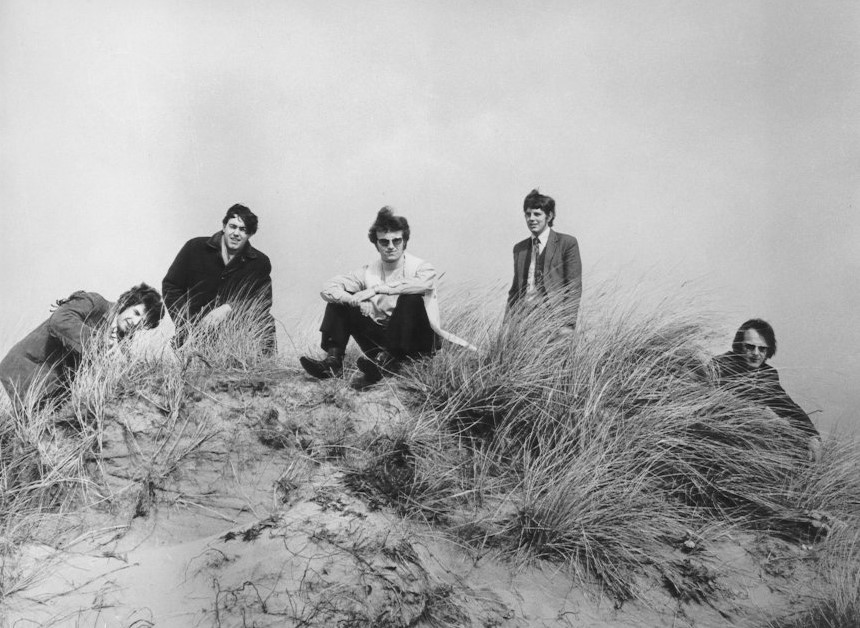
Thank you for taking your time. Last word is yours.
Lance: All I can say is that continues to amaze me, the continued interest in Complex and its recordings. Maybe if we had lived down in London we might have been BIG! All the best to your readers and hope they thrive. Love, peace and Brexit!!
Anthony: Thanks so much for your interest in the band. Hard to believe that when we made those recordings almost 50 years ago that people would still be interested in them now. I had a message from a young person a couple of weeks ago asking if I was THE Tony Shakespeare. This gentleman I estimate to be between 18-22 years old, so it’s not just us old timers and the material keeps finding new enthusiasts. Unbelievable, but thanks to you all.
– Klemen Breznikar

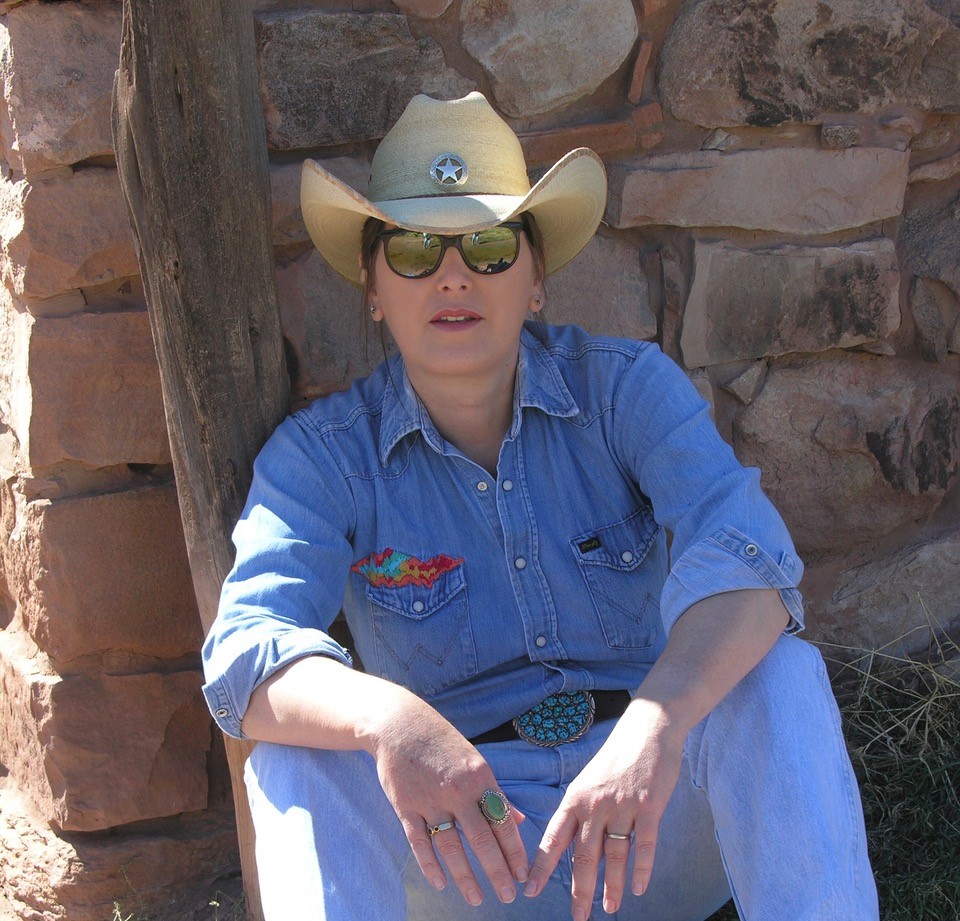
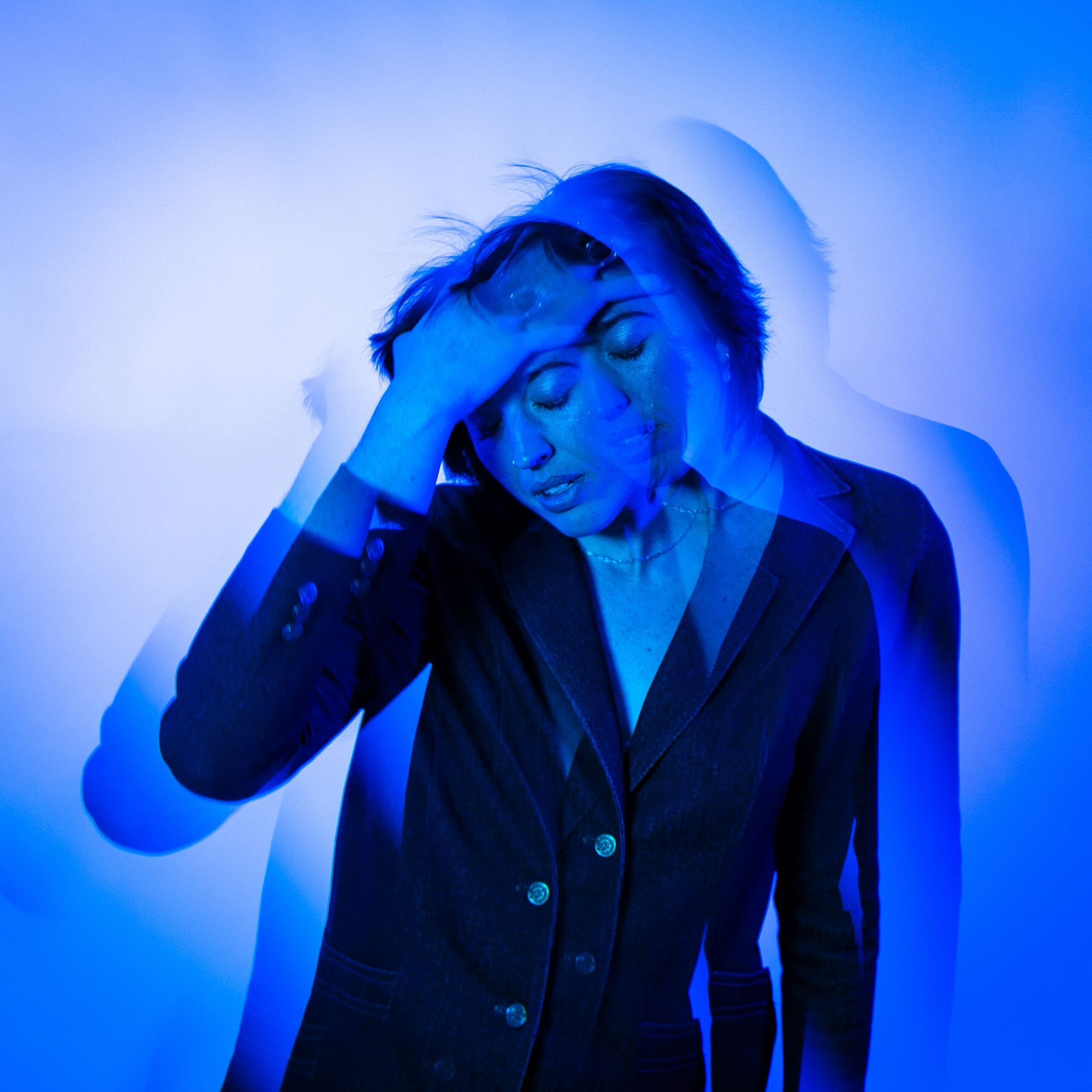
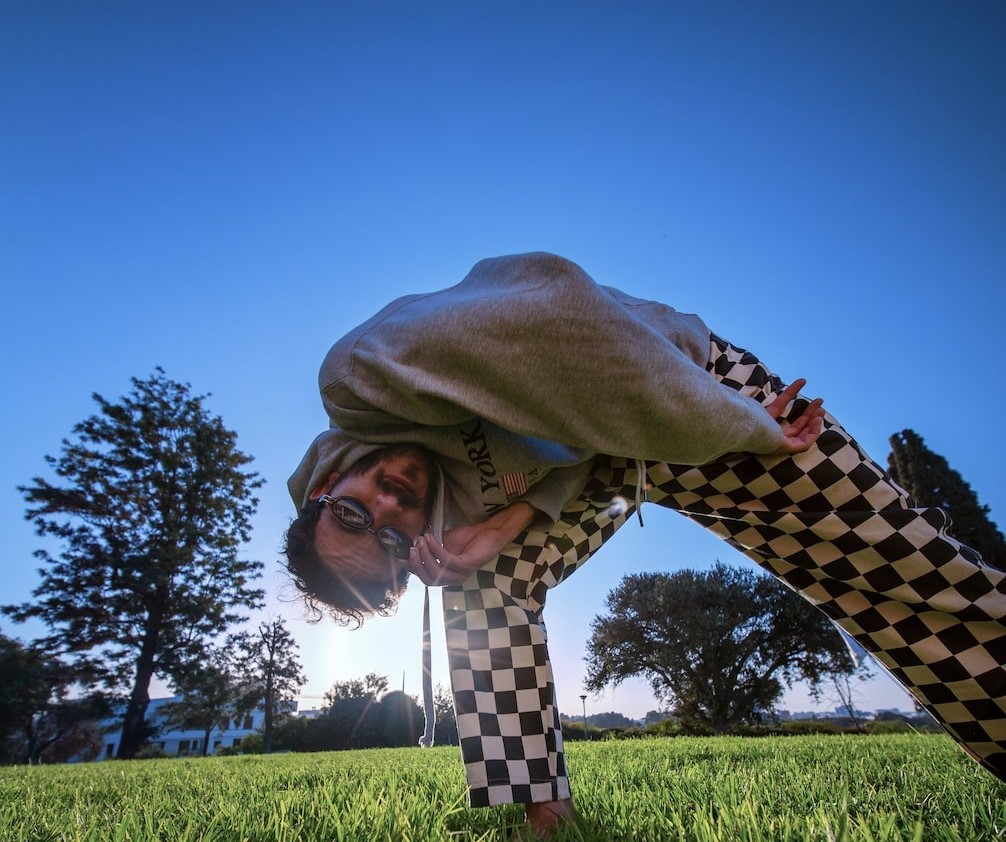
Good to see another unknown group see the light of day here; fine band.
Fond memories of being a Complex ‘groupie’ in my late teens, following them to various gigs around the Blackpool area but mainly spending Saturday nights at St. Anne’s lawn tennis club. Even made myself a t-shirt with the Complex logo on the front ? and tried to create a fan club for them. They were a fantastic versatile band with some really nice individuals behind the instruments. They deserved every success achieved and it should have been way more!
Fascinated by this – I formed the Fallen Angels at Salford University with Brian and others. I was the (crap) singer but Brian was a wonderful guitarist. We shut him in a room with the Bluesbreakers album (the one with Clapton reading the Beano on the cover) and he came out a few hours later note perfect. Also Geoff Blyth on keyboards – he had bought the Vox Continental from Alan Price that the Animals used to record House of the Rising Sun. And Pete Maybury on drums. Happy days – Brian if you see this be great to get an email from you – although I am in New Zealand these days get back to the UK most years.